Regional Cooperation Magazine
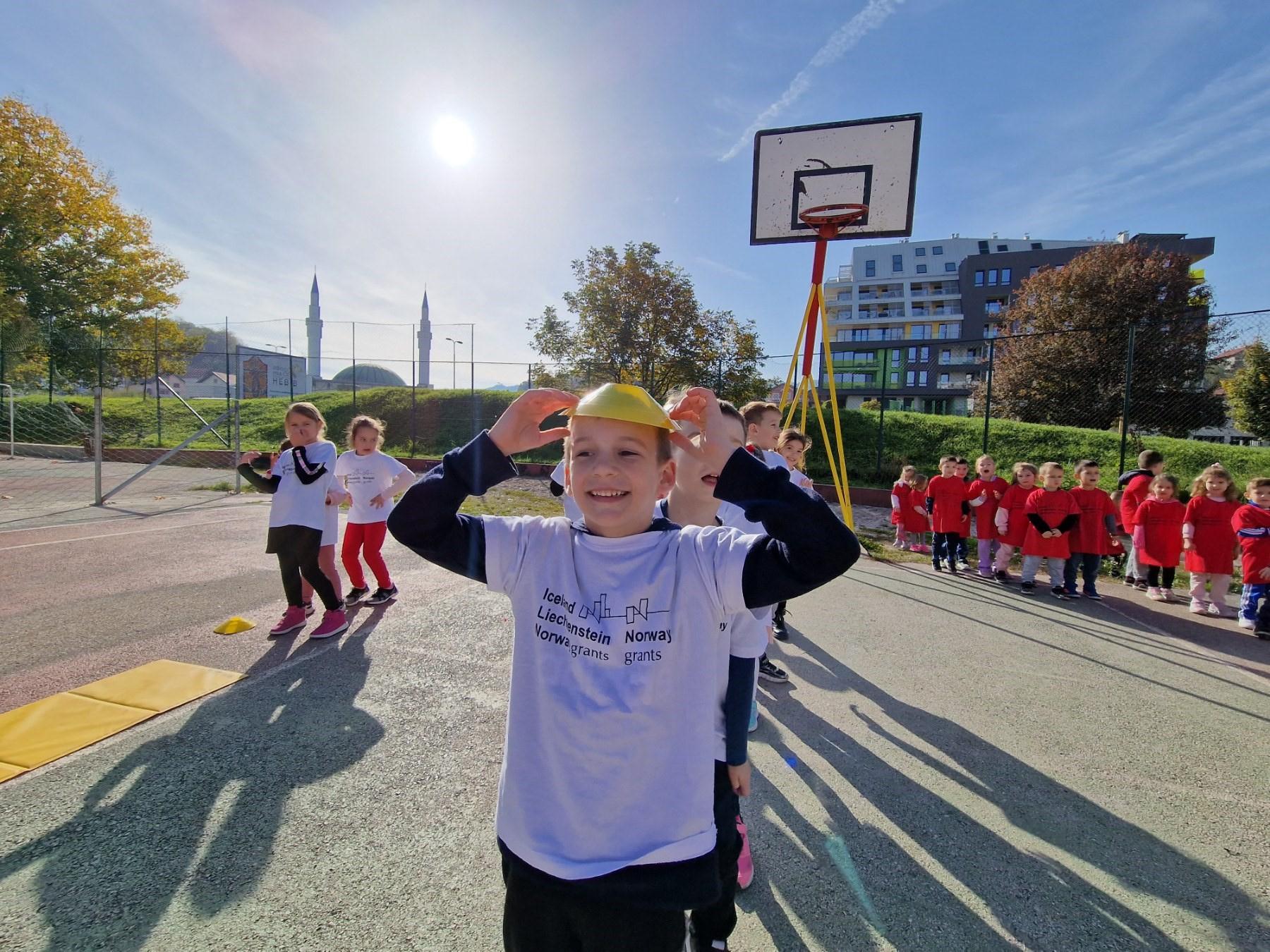
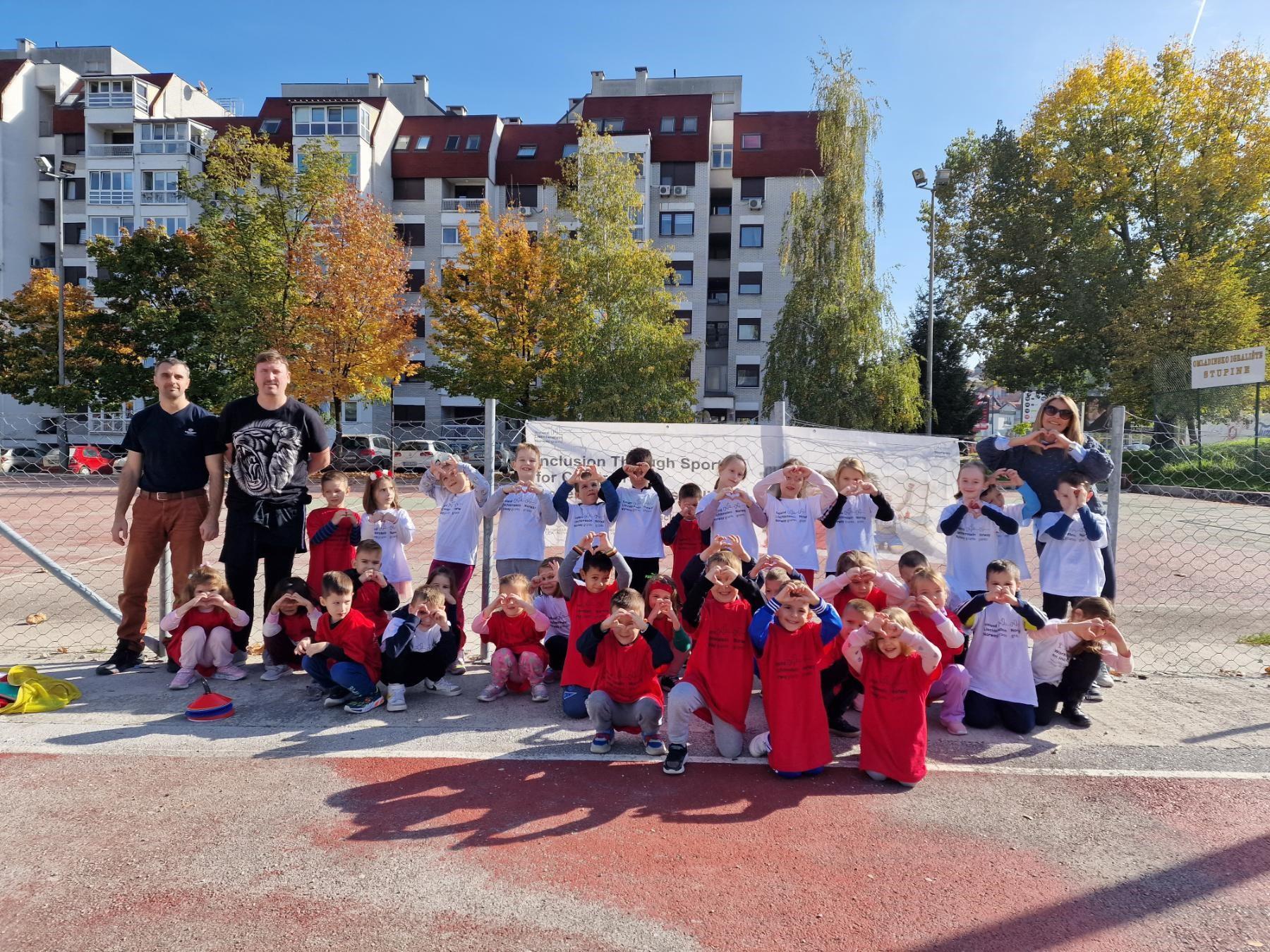

N.11 SSN 2784-9465 DECEMBER 2022
r e
i t s
n
u s
C
d
: I
c l
i o n t h r o u g h s p o r t s f o r c h i l d r e n w i t h d e v e l o p m e n t a l d i s a b i l i t i e s
So this is Christmas…..
Director’s Editorial
I am…
A chat with the Project Circular-based waste management for more Circular Christmas’ holidays!
Use of Big Data for Tracking Strategic Corruption and Kleptocracy. Strengthening the Role of the Civil Society and the Media
EU-WATERRES project at UN-Water Summit on Groundwater!
Workshop that will help improve Honey Bee Breeding Programs in Croatia, N. Macedonia and Slovenia
SUPMed project partners met in Crete, Greece to finalise the Best Practice Guide
Pilot tourist establishments in Cyprus, Greece and Malta have successfully managed to reduce the Consumption and Disposal of Single-use Plastics through the SUPMed Project
The WINGATE project helps Hungarian entrepreneurs with a free e-learning program

Ground-breaking digital crowdsourcing initiative brings “the wisdom if the crowd” into the decision making process on air quality in Europe
Knowledge exchange with the Circular Based Waste Management project Network and Communication Transferring of the BLUE-GREENWAY Project
Digital Vineyard Management - Good Practice of Data Analytics
Interborder and inter-agency cooperation to solve common problems: The need to tailor best practices in the P/CVE field With the inclusive developmental activities, we are reaching the better health of the children with disabilities in Bosnia and Herzegovina
Contributors & Credits
1 Regional Cooperation Magazine
Contents
2 4 6 8 12 14 16 18 20 23 26 29 31 33 35 38 40
To close this 2022, we are pleased to introduce our Mag with the words of our friend Tom, which we thank for his constant engagement, reminding as well the depth of his August poem, for our Special Edition, which you can find again in the following pages.
So this is Christmas…..
soaring inflation and the attendant surges in the cost of living.
The near and the dear one
The old and the young.”
John Lennon’s words of more than 51 years ago enjoy continuing resonance as the new millennium gathers pace – but it will be historians that will decide if the first near quarter has overseen progress or regress.
2022. Another year donated to history’s haul, another year of discarded diary entries. Another year over and what have you done? Well, quite a lot judging by the monthly testimonials of your projects and inputs in our magazines. These efforts and successes have been achieved against a multi-layered background of negative forces: the aftershocks of Brexit; the slow emergence from the darkness and deprivations of Covid into an uncertain light; the cataclysmic repercussions of the war in the East of Europe; the accumulative effects on energy and food security and supply; the crippling effects of
And you have soldiered on in the face of different diversities trying to fill the gaps left by partial public policies, and often in the face of indifference and ignorance. The largesse of your donors is a great boon, but it would pall if it were not for your individual and collective drive and determination. Current global circumstances will inevitably impact on the implementation/delivery of your projects but you continue to find ways to circumnavigate these obstructions.

And all the time, and one of the most impressive facets of your work, is the continuing personalisation and humanisation of the recipients who benefit from your actions –there is no place in your narratives for us and them. We are all one.
“And so this is Christmas
The European Year of Youth starts to dismantle its props from the stage now and will be followed by analyses, reviews and – hopefully –follow-up actions. It is customary at the end of each year, personally and professionally, to take stock, look back, look forward and make projections and promises. Despite all the year’s drawbacks it has been a very busy year under the ‘youth’ umbrella. There have been lots of activities; but unless those activities combine and coalesce into meaningful collective actions a lot of honest endeavour will be wasted. Pushing first, and then pulling, the next stage in this evolution should be advocacy while we are all moving towards the 2023 - Year of the Skills and Competencies. This is the proper pathway, that ensures also that events are not stand-alone, once-off happenings but develop into processes that will eventually allow the launching projects be contributors to policies.
2
Regional Cooperation Magazine
“So this is Christmas
And what have you done?
Another year over And a new one just begun.”
I hope you have fun
“A very merry Christmas

And a happy New Year
Let's hope it's a good one
Without any fear.
And so this is Christmas
For weak and for strong
For rich and the poor ones
The world is so wrong.
progress, new openings and the broadening of our family of readers.
And so happy Christmas For black and for white For yellow and red ones
Let's stop all the fight”
“War is over If you want it War is over Now”
Not yet, John, not yet. Soon? Insha’Allah; Please God.
On a more personal note, many thanks to all the readers for your patience and understanding. It’s been quite a while since we’ve had an opportunity to meet up. Maybe 2023 will offer that chance to go ‘live’ again and not to be spent hiding behind Zoom exchanges. As the director will also, undoubtedly say, thank you for your selflessness, for your tirelessness, for your stubbornness in being there for the less fortunate. And thank you for providing me with fodder, through your projects and stories, for these monthly articles. Here's hoping for further

 Thomas Mc Grath
Thomas Mc Grath

3 Regional Cooperation Magazine
Photo credits: Circular-based waste management
A happy and healthy new year to all.
Director’s Editorial
Dear Friends,
I am putting down my usual introduction in the middle of our holiday season, and the first thing I notice is that, this one of 2022, is not really the most classic winter break we could imagine. And I am not talking only about the international geopolitical situation (and we talked too much about Covid in the recent past). Indeed, since these themes are already familiar with the Projects of the Regional Cooperation Magazine’s Family, I was thinking more about the rather abnormal temperature we are facing these days, at least here in Italy and here around in this side of Europe. Oslo is one of the few cities with a minus… (-2)!
When I think of Santa Claus, I picture him well wrapped up from the cold in the snow. This year it seems more like sipping an aperitif on a warm spring afternoon. That is why I thought of all the times we talked about climate change, especially in recent months, and how much our Projects are working to fight it, following the main challenges that have accompanied us throughout this year, from EEA & Norway Grants priorities to the Agenda 2030 goals.
And related to that, I am very happy to introduce you a very interesting chat we organised with the Project Circular-based waste management: during the fourth annual seminar held in Brussels two weeks ago, I listened with great interest to Maritsa's presentation, that is why we decided to interview her, representing the Project. I am convinced that these issues go beyond our priority areas, on the contrary I believe they help all of us to address some problems that we see and touch every day in our routines.


But during the annual seminar we didn't just talk about this: a lot of best practices were presented, confirming the high dedication of all of you, regardless of the specific sector covered. Regional Cooperation, after all, is a single whole made up of many small and different pieces, which, step by step, seek connections for new solutions. And, with 2023 around the corner, I believe that you all have been an important ‘piece’ of this puzzle, which is our Family. A Family that is enlarging, as it is demonstrated for example by the collaboration with Tirana, being the 2022 European Capital of Youth, now passing the witness to Poland, with Lublin (with which we are preparing something for January :) ).

4
Regional Cooperation Magazine
The Regional Cooperation Projects, indeed, demonstrated that also finding links with the rest of the Family represented by the Fund for Youth Employment members, sometimes directly cooperating together. That is why I want to thank you all, especially considering your important role during the European Year of Youth. Your engagement has been fundamental since 2023 will be the European Year of Skills and Competences: your support during 2022 has been precursor for next year, where you, Projects of the Fund for Regional Cooperation, will be more protagonist.
And I believe that new collaborations will come. In Brussels the two Funds were together. And this picture here, where Vasi Gafiuc representing the Project SEPAL donated this very kind present to me for the whole Fund Operator, again another important demonstration of the solid group we managed to create and cultivate during these years.
In other terms… we need you :) I participated at some events recently, from the Education Summit to the final legacy event of the European Year of Youth, and guess… not only a great attention was given to the main theme of next year, skills and competences, but particularly commissioners, organisations, civil society members and all institutions, they all stressed the importance of cooperation. So… if not you, who?
And you are already doing great, we can see it from this issue of our Mag, just scrolling the titles of the different contributions. I really think that the concepts of skills and competences are already there, it is, for you, a knowledge path. Therefore, we can just go on and ameliorate.


‘Strengthening the Role of the Civil Society and the Media’, ‘Best Practice Guide’, ‘crowdsourcing initiative’, and particularly… a term I liked a lot, ‘transferring’, that I found in the title of the BlueGreenway Project, or ‘Interborder and inter-agency cooperation’, part of the title of Project Hope, and I could go on…. This is just meaning, to me, not only that our Projects are already anticipating the big theme of next year, but also that we can just keep up and ameliorate.
Let’s open the doors, then, to 2023!
Wishing that it will be full of a higher cooperation, we thank you for the commitment shown up to now.
 Gian Luca Bombarda The Fund Director
Gian Luca Bombarda The Fund Director

5
Regional Cooperation Magazine
I am…
I am the clay, the potter’s earth In your hands, to transform from dirt Into a thing of beauty.
I am the word, alone in your soul, Link me to others, to make a glorious whole Of sonnets, plays and novels.
I am the oil, dormant on the palette From where you will start To paint great works of art.
I am the note, nascent, for now, That your genius will allow Give birth to the beauty of a symphony. *******
I am the outlier of society; I am uneducated; I am untrained; I am unemployed.
I am Roma, I am Rural, I am Refugee; I am voiceless in a circus of cacophony; I am an orphan in a world of families; I am grey in a palette of colour.
I am pilgrim in a foreign land Beyond my heart’s extended reach, take my hand.

6 Regional Cooperation Magazine
*******
I am humanity, whose percussion and beat Form the rhythms of the universal street.
I am the project, crafted by care
We are the network, linked by empathy.
I am the sharer, do not call me donor
I am your friend, not your benefactor.
I do not question, judge or condemn; Our souls share the same journey.
In another sphere I am you and you are me; United we are one, together we are the world.

7 Regional Cooperation Magazine
A chat with the Project Circular-based waste management for more Circular Christmas’ holidays!
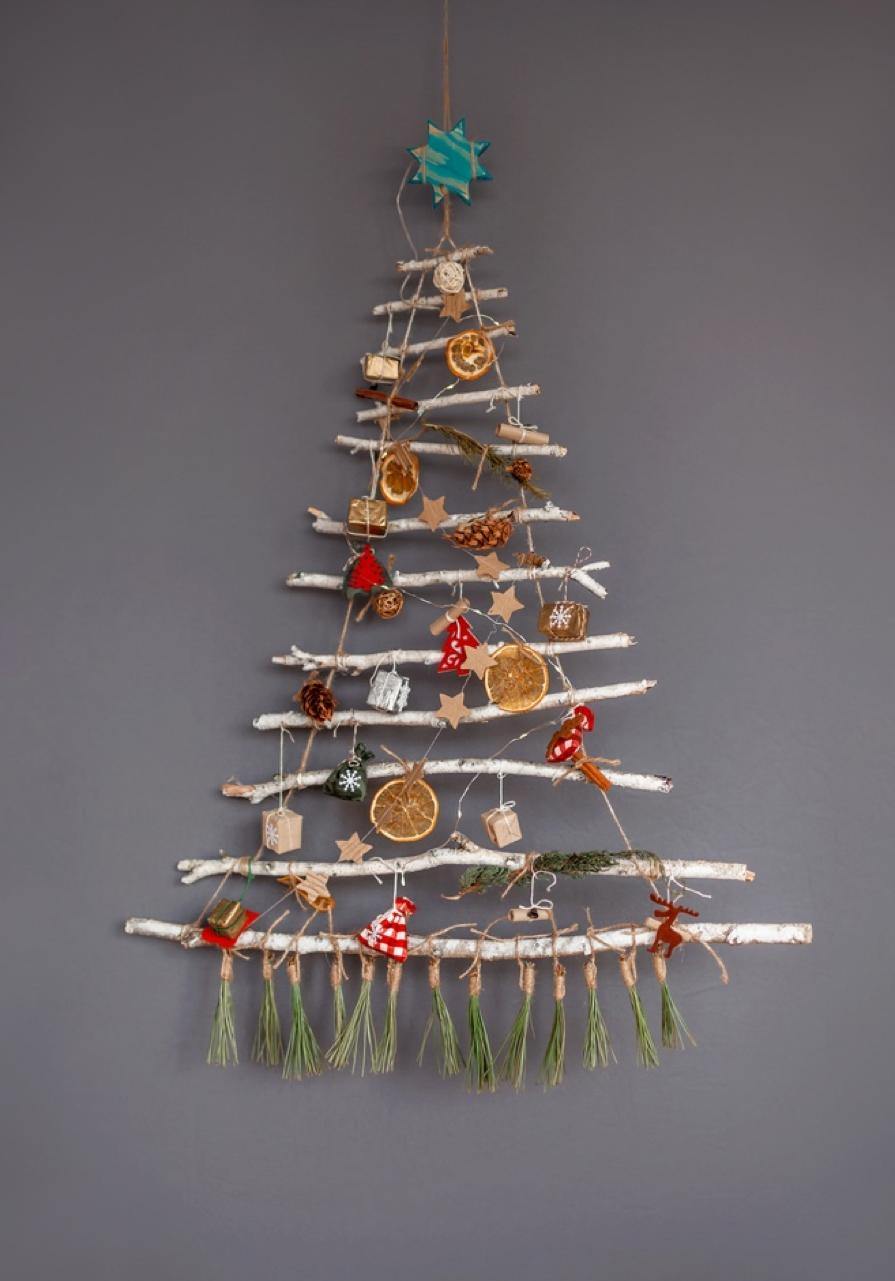
An exchange between Maritsa, representing the Project, and Francesca, after listening to the presentation given during the 4th Annual Seminar.
During the Annual Seminar, you presented this very curious title: Santa’s Role in a circular economy. Curious because, while it makes us think about Christmas, it directly goes to that: ‘economic disaster’ or ‘More waste is generated during the holiday season? Can you explain a bit?
«The annual seminar in Brussels this year felt a bit special as after a long time the projects under EEA Norway Grants could finally meet in person. Knowledge sharing is at the core of our project and although we are focusing on waste, the Circular Economy is a cross sector topic.
As the event coincided with a small exploration on the topic of waste generated during Christmas time, it felt appropriate to share some findings and tips for a more Circular Christmas with the other projects. Studies have shown that we generate 20-30% more waste than usual. For this reason, green groups call it the world’s greatest annual environmental disaster. This is not only true about Christmas though. Similar large holidays from around the world have been shown to result in more waste being generated. A member of the audience also pointed out about birthday celebrations. Celebrations in general are associated with excess and with excess comes more waste. So, in summary, the presentation was aimed at taking a short period like Christmas to think not only about how we are being wasteful, but more importantly how we can be less wasteful. In doing so, we can slowly adopt new habits and ways of thinking, that we can carry out throughout the year».
How has this situation changed over the last years?
«We still have a long way to go to improve on waste management and think in a circular way. The good thing is that the urgency to handle waste properly and minimise it has been recognised and governments are implementing policies accordingly.
In Europe for example, common targets have been set for the reduction, recycling and management of waste, such as recycling of 65% municipal waste by 2030, recycling of 75% of packaging waste by 2030 and promoting re-use of waste items among others.
By having defined the term Circular Economy, we have a goal to work towards and a philosophy by which to adhere to in the design and production and whole lifecycle of products and processes».

8
Regional Cooperation Magazine
Then a beautiful Christmas tree: should we go for the plastic or the real? Logic/environmental choice or said choice?
«There are arguments for both sides: a plastic tree can last many years whereas a real one can be composted or burned. The bottom line is that for a plastic tree to outweigh the carbon footprint of a real tree it should be reused at least 10 times. Unfortunately, on average plastic trees are only reused about 4 times. Having said that, it is also true that a real tree is not always feasible, when I was growing up there were only plastic ones available, I learned about real ones much later in life.
Another option can be to have no tree at all, or to get creative and decorate something else, perhaps a houseplant, or make a tree shape with branches. We explored this topic a little more in an article that can be found on the project website: http://circular-waste.eu/index.php/2022/11/23/santas-role-in-a-circulareconomy-part-1-the-christmas-tree-and-ornaments/ ».
You also talked about local shops: how are they, today, working after Covid? And is Amazon or similar online shops going to win? How could we change that?
«We touched on the topic of local shopping from an environmental point of view, as doing so helps cut carbon emissions and air pollution from transportation. The shorter journey from producer to consumer, means less produce gets wasted along the way and less packaging is needed to protect it. It also helps support local artisans and producers and the local economy in general.
As for recovery from Covid, the effects and recovery vary depending on location. For some remote areas for example, local shops became their lifeline, in others, shops had to close, while others have managed to persist through this difficult time, in some cases thanks to financial assistance by their governments.
Online retailers like Amazon had an advantage during Covid and for sure more people took up online shopping. It’s a long discussion as to whether large online retailers or local stores will prevail, but I think going into a local shop offers an irreplaceable, unique experience and I read that in some places shopping locally has increased after Covid. Perhaps as we evolve shopping behaviours, a combination of local and online might be the way to go, with small shops offering options for online orders».
Analysis costs/benefits: do you think we will be forced to arrive to the most expensive but useful solution (eco-green) in the next future?
«Whether we will be forced to go green directly or indirectly is a complex and huge topic. It is a complex problem precisely because our economy is based on perpetual growth. There are a lot of factors that affect that question like economics, policy, social values and consumer behaviour. Creating a value chain from sourcing the raw material, through to production and purchase by a consumer is a process that costs money and time.
Looking at it in a very simplistic way, it’s a bit of a chicken and egg situation: as sustainable products are more expensive, even if consumers might have preferred them they might not buy due to their cost, the little demand means less investment and this means the few options out there are more expensive to produce to start with, this cost is passed to the consumer and so the cycle continues».
Circular economies… how much time do we have left to at least start doing something good, stopping the controversies/polemics but really doing something concrete?
«As with all problems, once identified, the sooner we act the better. A study by the World Bank suggests that if we carry on business as usual, worldwide municipal solid waste will increase by around 70% by 2050, from 2.24 billion tons in 2020 to 3.88 billion tons in 2050. By adopting the right measures early on, less waste can be produced than what the grim predictions show and waste can become widely seen as a valuable resource».

9
Regional Cooperation Magazine
Do you see young people involved in this process?
«Definitely, they have to be. Transitioning is a long-term process, it will not happen from one day to the next. If we want change to take hold long term and through the next generations, we need to already involve young people, after all, it is their future.

Nowadays, young people have a lot more access to information than we did and are more aware of environmental issues. As Professor Ierotheos Zacharias from the Blue Greenway project pointed out at the event, young people don’t have predefined ideas and can come up with unique solutions».
Which could be, in your opinion, the best present we could prepare for our planet for 2023 Christmas?
«The best present for the planet is also one we can give ourselves: being more mindful in how we shop.
Trying to leave behind our consumerist behaviours and take a step back to think: Do I really need this? Is it sustainable or produced by sustainable means?
It sounds simple enough, but it’s a small action that circles back in its impact, individually for our wellbeing, especially mental and collectively, for the planet».
Maritsa Kissamitaki
Circular-based waste management
10
Regional Cooperation Magazine
Environment, Energy, Climate Change and Low Carbon Economy
Culture, Civil Society, Good Governance and Fundamental Rights and Freedoms

11
Home Affairs Innovation, Research, Education and Competitiveness Social Inclusion, Youth Employment and Povery Reduction
Justice and
Use of Big Data for Tracking Strategic Corruption and Kleptocracy. Strengthening the Role of the Civil Society and the Media
The war in Ukraine has made it very clear that bridging the gaps in governance in Southeast Europe is essential to achieving economic growth, maintaining national security, and remaining resilient in the face of foreign authoritarian threats. Tackling corruption through the establishment of comprehensive preventative anti-corruption procedures is essential for reducing SEE's susceptibility to the jeopardisation of democratic institutions and the destabilisation of the socio-economic environment. As democratic backsliding, strategic corruption, kleptocracy, and illicit finance continue to plague the region and weaken the EU's internal cohesiveness and overall strength, new approaches to strengthening the role of the civil society and the media must be sought after.
The initiative Regional Good Governance Public-Private Partnership Platform (R2G4P), coordinated by the Center for the Study of Democracy, Bulgaria, aims to close anticorruption policy implementation and public procurement gaps across Southeast Europe and amplify the impact of the planned increase in EU infrastructure support until 2025.


The Platform has continued its efforts to increase the capacity of its civil society and government partners to monitor, diagnose and tackle corruption risks, through a three-day regional training held on 13-15 December 2022 in Bucharest, Romania. While the first regional training was structured around the initiative’s key methodologies and the second one explored the conceptual framework of illicit finance, this third training focused on the use of big data and online surveys for assessing corruption vulnerabilities.
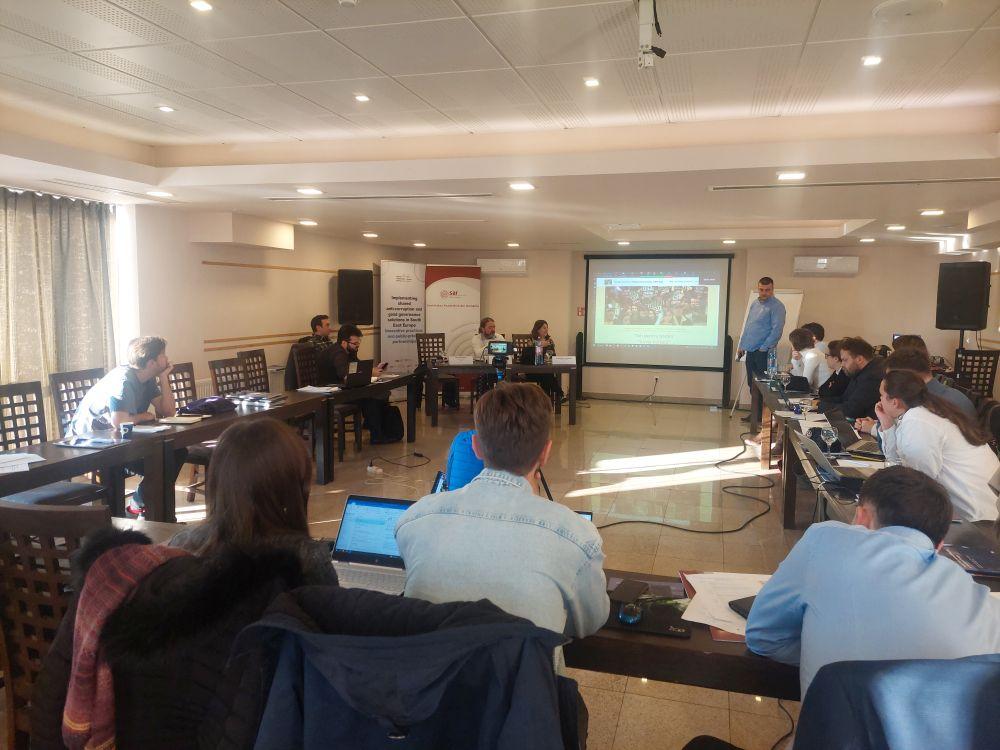
12
Regional Cooperation Magazine
The speakers presented the best methods for studying, measuring, and prosecuting strategic corruption, kleptocracy, and illicit enrichment. Among the presenters were Prof. Alina Mungiu-Pippidi, President of the Romanian Academic Society (SAR) and Chair, European Research Centre for AntiCorruption and State Building Research, HERTIE School of Governance, John Glenn, Senior Director of Research and Conference, International Forum for Democratic Studies, National Endowment for Democracy, Dr. Ina Kubbe, Researcher and Lecturer at the School of Political Science, Government and International Relations at Tel Aviv University (TAU), Ionuț Pîndaru , Integrity Inspector, National Integrity Agency, Romania, Alexandra Carmen Lăncrănjan, Prosecutor, National Anticorruption Directorate, Valentin Topoloiu, Preventing corruption officer, Romanian General Anticorruption Directorate, Elena Ventura, Program Assistant, Carnegie Europe, Gabriela Alcea, Director of the Supervision Department, National Agency of Public Procurement, Romania, and Maria Jofre, Postdoctoral Research Fellow, Transcrime, Italy.
They showcased how investigative journalists and civil society could expose shady deals of politically connected companies or ill-gained wealth hidden by politically exposed persons. Representatives of the Romanian anticorruption authorities shared good practices in the use of electronic databases, such as e-DAI and PREVENT. By the end of the training, the participants built up a capacity to perform network analysis, public procurement risk assessment, and safeguard the distribution and spending of national and EU funds.
Project Implementing shared anti-corruption and good governance solutions in Southeast Europe: innovative practices and public-private partnerships
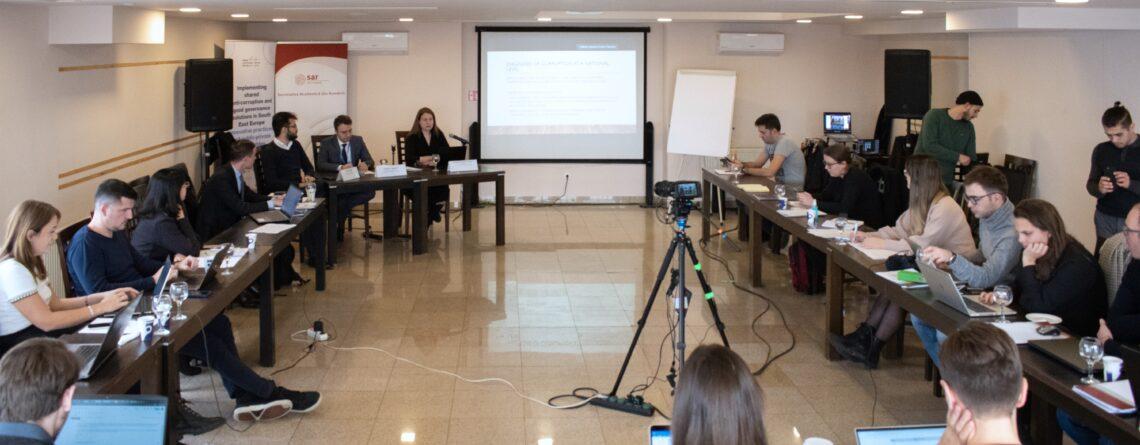

13
Regional Cooperation Magazine
EU-WATERRES project at UN-Water Summit on Groundwater!
We have returned from the largest and one of the most important groundwater events in 2022 - UN-Water Summit on Groundwater, which took place on 7-8 December 2022, with pre-summit side events on 6 December 2022 in Paris. EU-WATERRES project team was represented by partners University of Latvia (Inga Retike and Jānis Bikše) and Geological Survey of Estonia (Magdaleena Männik).
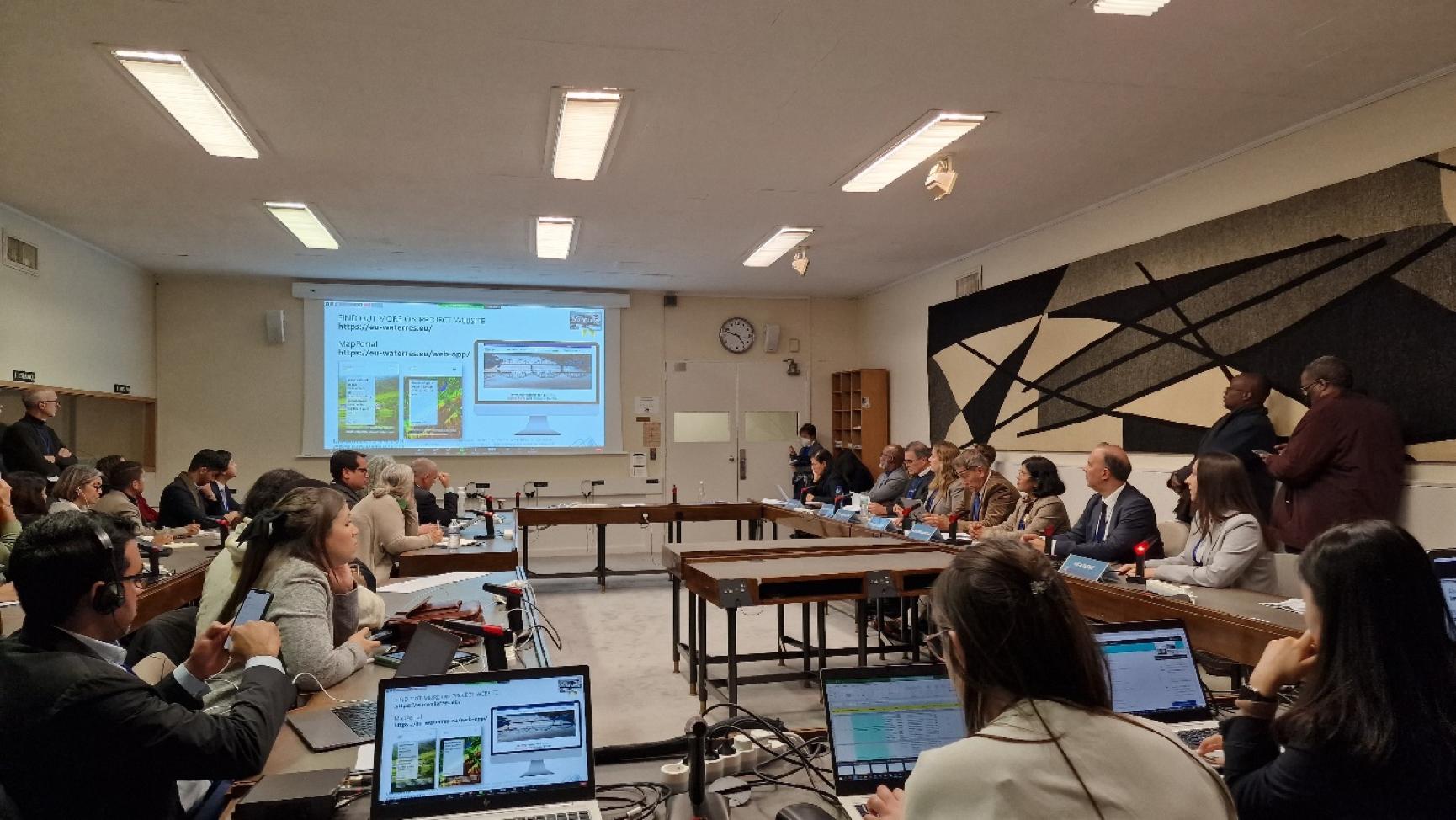
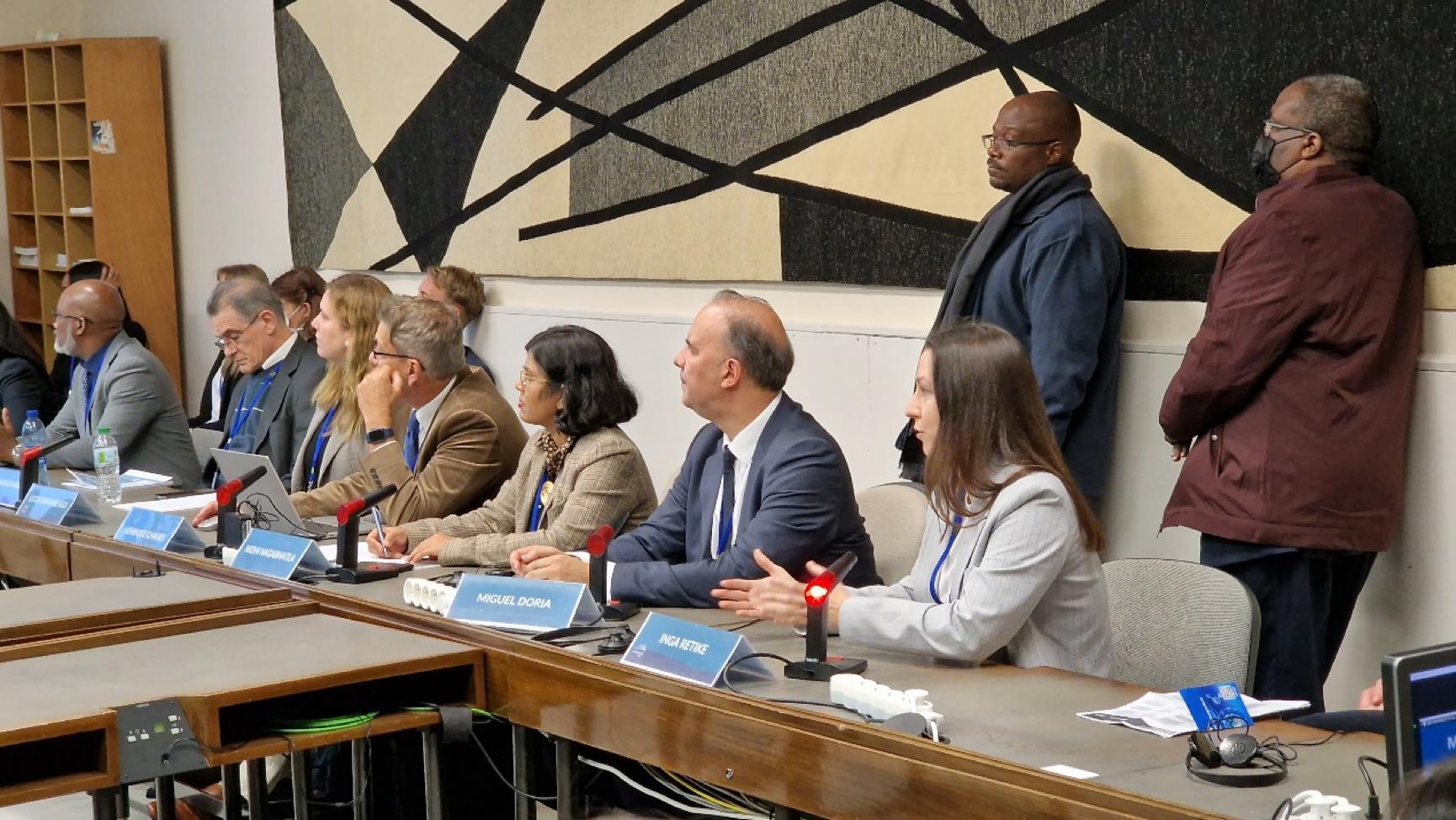

trainings with the MapPortal is among the major tasks of project EUWATERRES team in 2023.
You can watch our talk here: https://youtu.be/OajErU2L85E?t=25083 or access the presentation here: https://www.researchgate.net/publication/ 366445305_Transboundary_groundwater_resources__joint_treasure_and_responsibility
Fig.1. Inga Retike giving the talk “Transboundary groundwater resources –joint treasure and responsibility”
The talk given at the side event “Transboundary Aquifers in the world” by Inga Retike (researcher and communication manager) presented our approach in managing transboundary aquifers between Estonia-Latvia and Poland-Ukraine and showcased the newly developed MapPortal (https://euwaterres.eu/web-app/) for stakeholder needs. On-site and online stakeholder
Fig.2. Inga Retike presenting EU-WATERRES MapPortal
14
Regional Cooperation Magazine
The event gathered more than 850 on-site international participants, 3,500 online participants from more than 139 countries and what is most important, it provided the framework for groundwater to be visible worldwide. This high participation and commitment from all the attendees and speakers demonstrated the interest but also the concern about the global challenges we face on groundwater-related issues. The Summit served as the culminating event for an important year for groundwater, the year of the UN Word Water Day 2022 campaign: Groundwater, making the invisible visible. Do not worry if you missed the event or want to refresh some of the greatest talks.
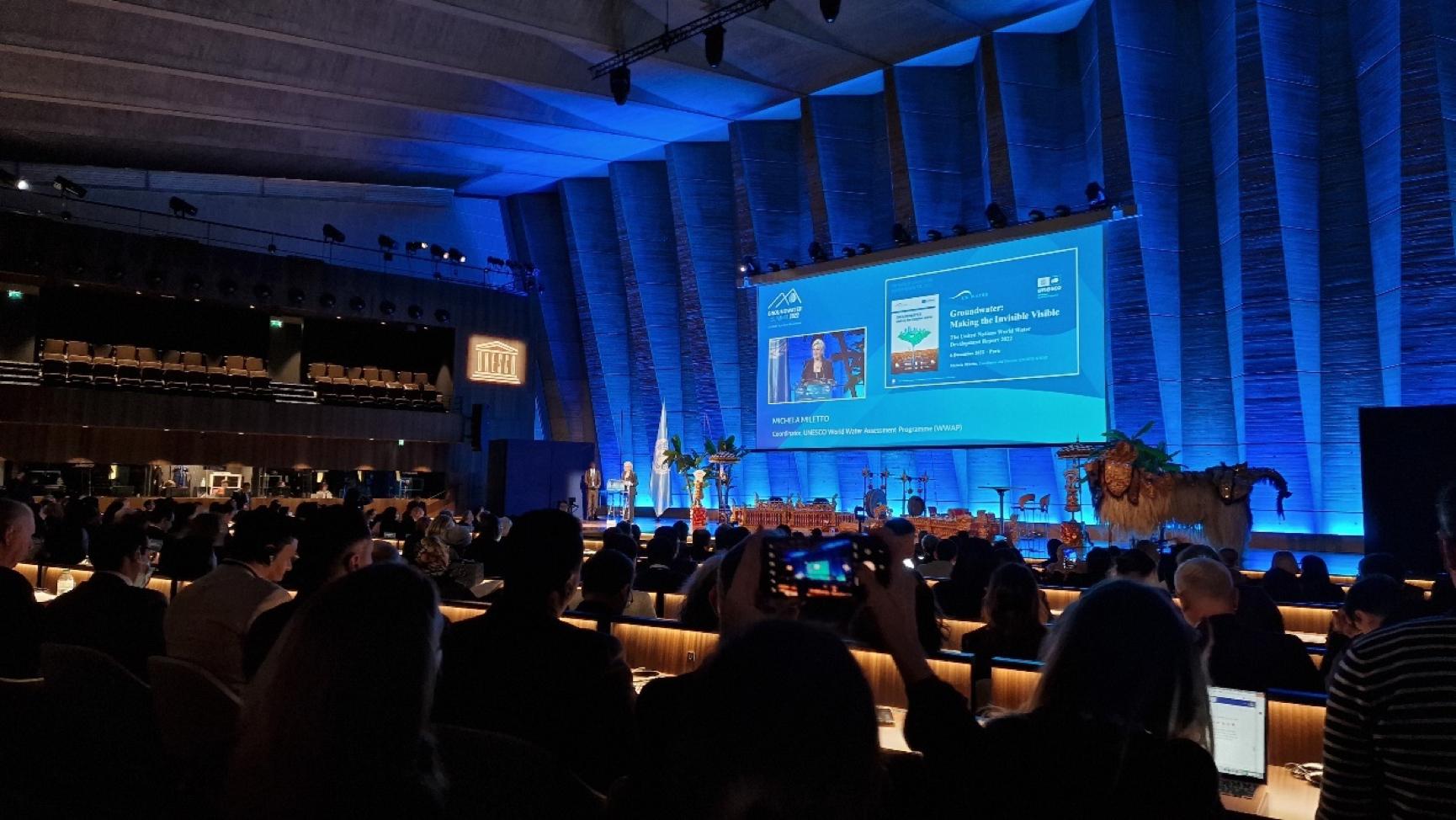
You can replay them here: https://groundwater-summit.org/recordings/ Watch the highlights video here: https://youtu.be/VBj03ttuqqY
Fig.4. The year of the UN Word Water Day 2022 campaign: Groundwater, making the invisible visible (get to know more: https://www.unesco.org/ reports/wwdr/2022/en/node/163)
Do you want to know more about EU-WATERRES project? Visit project’s homepage https://eu-waterres.eu/

Project EU-WATERRES
Fig.3. Jānis Bikše (UL) and Magdaleena Männik (GSE) discussing various great talks at the summit
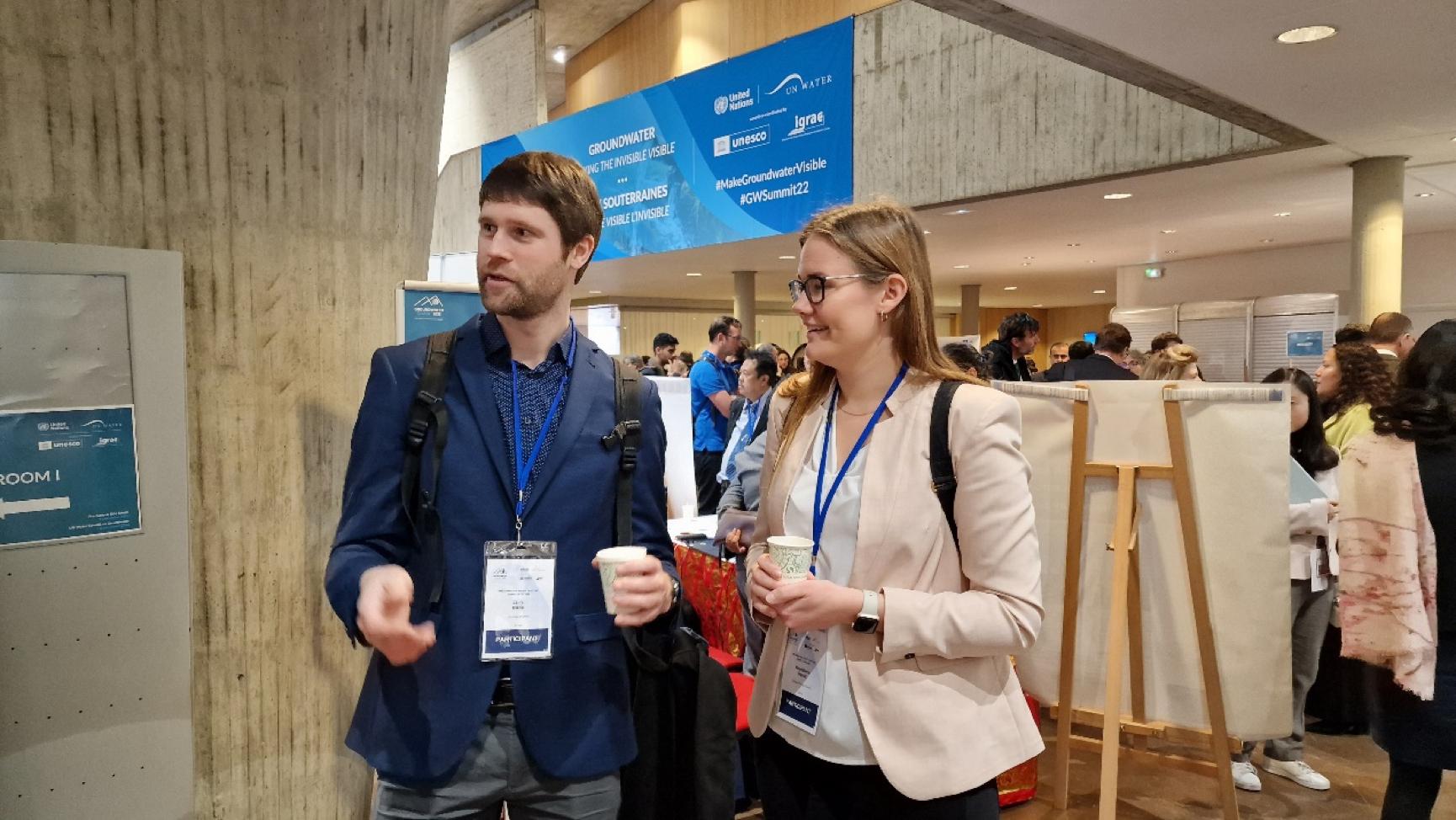
15
Regional Cooperation Magazine
Workshop that will help improve Honey Bee Breeding Programs in Croatia, N. Macedonia and Slovenia

In the beginning, the introduction provided information and knowledge regarding the key elements of the breeding program in general and specific aspects of breeding programs in honey bees. Representatives from Croatia, N. Macedonia, Norway, and Slovenia presented their current honey bee breeding programs and challenges. Special attention was given to peculiarities of the estimation and interpretation of Breeding Values, with details on procedures, steps, and examples. The specifics of breeding programs in New Zealand and the Basque Country were presented, as well as mating control and challenges in the execution of the breeding program. Another aspect of the effect of selection and local adaptation on resilience and economic suitability in Apis melifera carnica was also present.
By presenting the economic implication of breeding honey bees, the participants were introduced to various costs for different modalities in the execution of breeding programs in honey bees. Additionally, there was an introduction to the methodology for assessment of the cost of different methods of mating in honey bees.
BeeConSel training Workshop on Estimation breeding values in honey bees was held in Skopje, N. Macedonia, from Dec 5th to Dec 8th. In the workshop, in total, 28 participants took part from Croatia, N. Macedonia, New Zealand, Norway, Slovenia, Spain and Sweden. The participants were from various stakeholders, e.g. queen producers, professional beekeepers, policymakers, breeding program executors and researchers.
The workshop covered the professional elements of honey bee breeding programs, expected outcomes, organizational challenges and economic consequences, and legal aspects in execution.
The representatives from authorities (policy makers) presented the different honey bee breeding national legislations (laws and rules) in Croatia, Macedonia, Norway, and Slovenia. There, it was an open discussion regarding each country's specific rules and how the regulation of controlled mating in honey bees can be improved as a vital element of the successful breeding program. The discussion was also about how policy incentives can help stability and better execution of the honey bee breeding program.

16
Regional Cooperation Magazine
In the frame of the workshop, a visit to Golden Brick, a private honey bee producer with around 600 colonies, was organized. The participants were introduced to large-scale business concepts in honey bees, where unique products were developed. In addition, they were presented with how they will organize mating control for their needs and commitment to their queen's production.
Participants had a fruitful discussion and used the opportunity to exchange their knowledge, experiences, and opinion regarding various aspects of mating control and organization of breeding programs in honey bees.
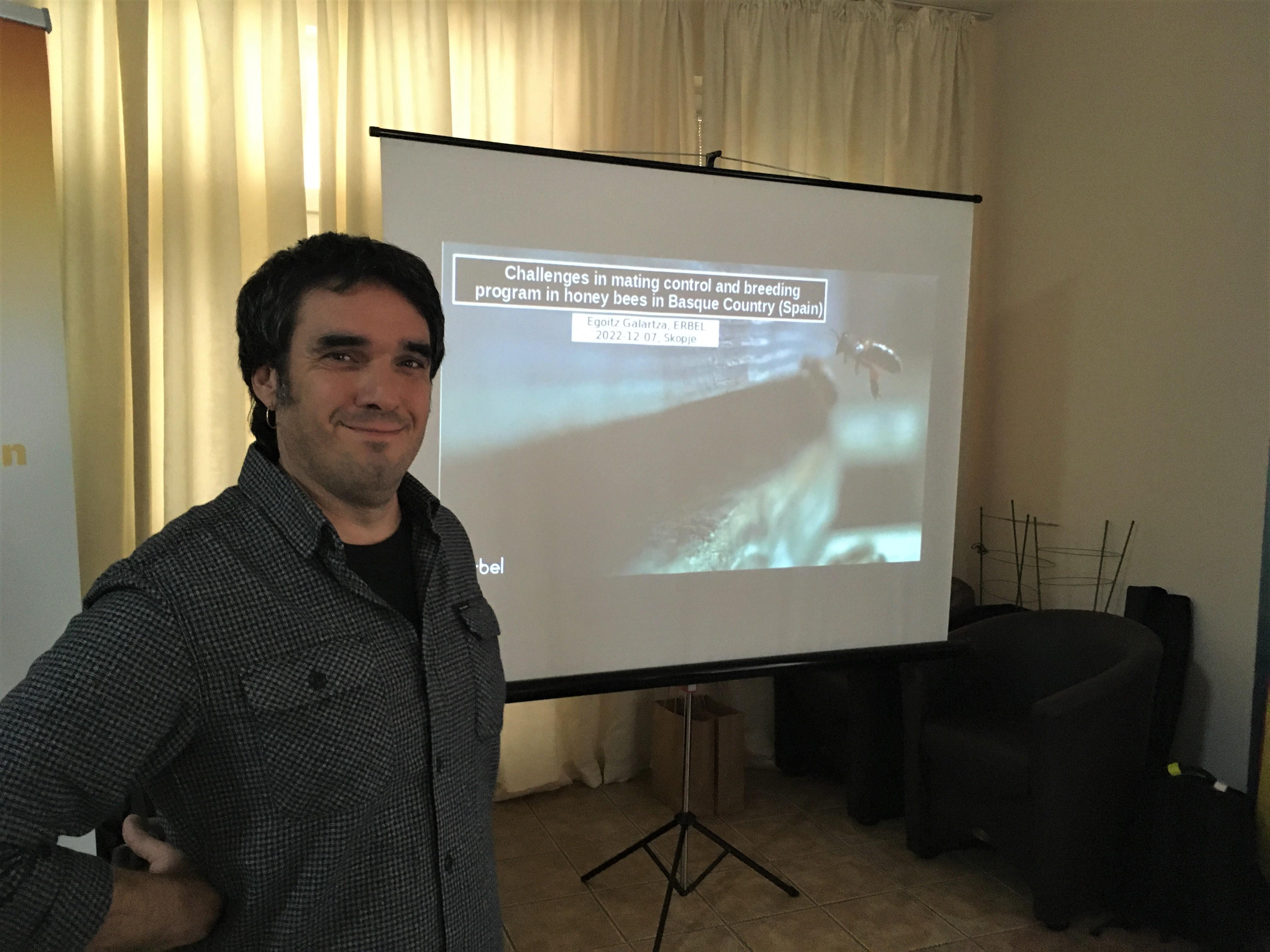
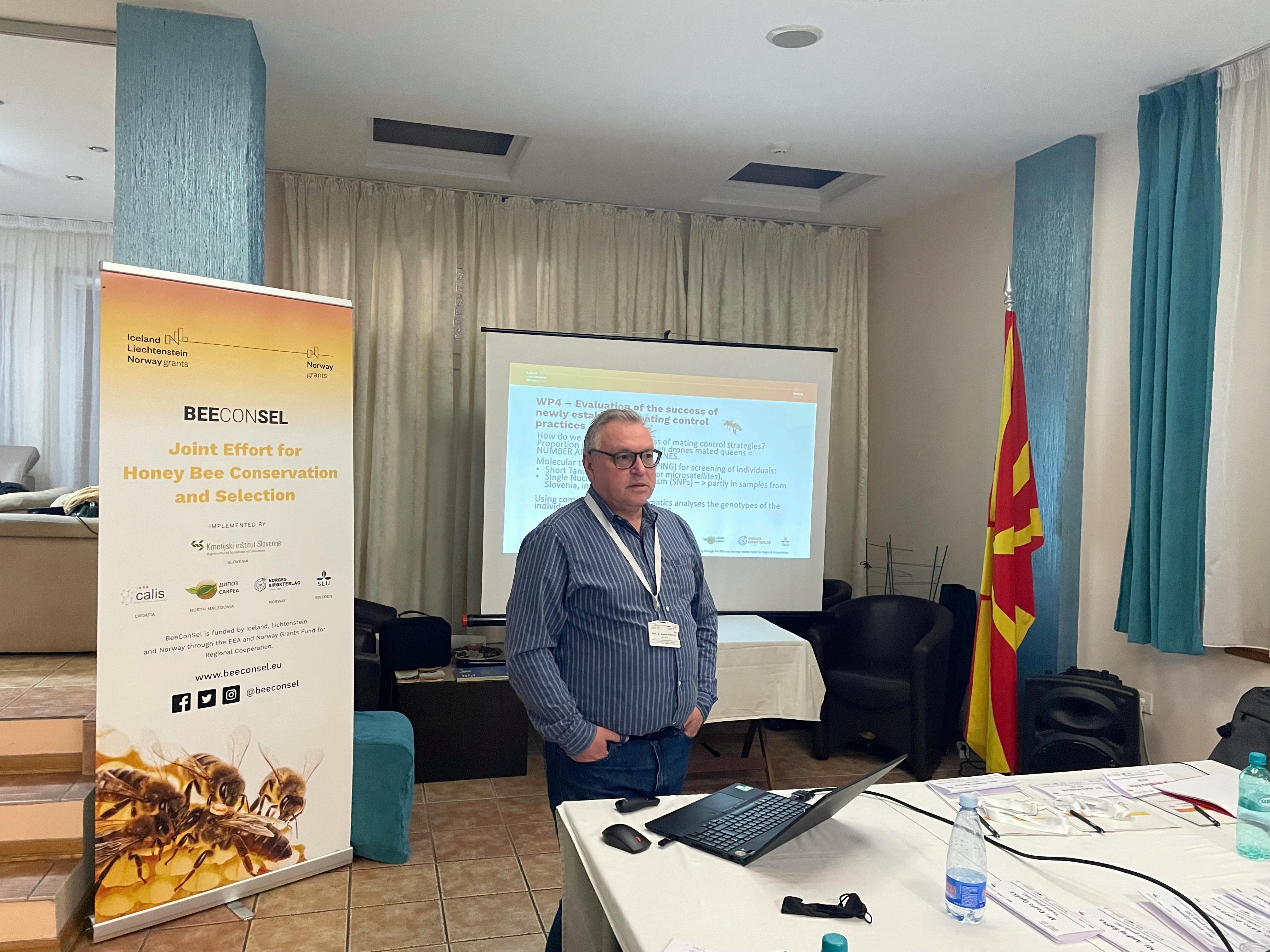

17
prof. dr. Sreten Andonov
Regional Cooperation Magazine
Project BeeConSel
SUPMed project partners met in Crete, Greece to finalise the Best Practice Guide
the host partner, Anelixis Development Consultants S.A., organised site visits to the tourist establishments that participates in the pilot sample in Crete. During the site visits, representatives of the pilot sample discussed the so far experience of participating in the pilot sample of the project with the partners and the measures that they have applied based on the actions proposed through the action plans. One representative highlighted the importance of having the partners of the project supporting their transition from using Single-Use Plastics to environmentally friendlier and cost-efficient alternatives. Also, it has been stated that unique tools as DST can be a way to motivate tourist establishments to comply with relevant EU legislations, and further cut down their consumption of Single-Use Plastics.
On Wednesday, 2nd of November 2022, representatives of each partner of the project titled "Reducing the consumption and distribution of single-use plastics in the tourism industry in Cyprus, Greece and Malta", also known as "SUPMed", met in Crete to discuss and coordinate the project. By taking into consideration that the project will be ended in less than a year (June 2023), the partnership of the project organised the on-site project meeting in order to plan the next steps of the project and most importantly, to finalise one of the most significant deliverables of the project, the Best Practice Guide.
Since due to COVID-19, the partners haven’t had the chance to meet in person in Crete and all the press events were held online, as part of meeting,
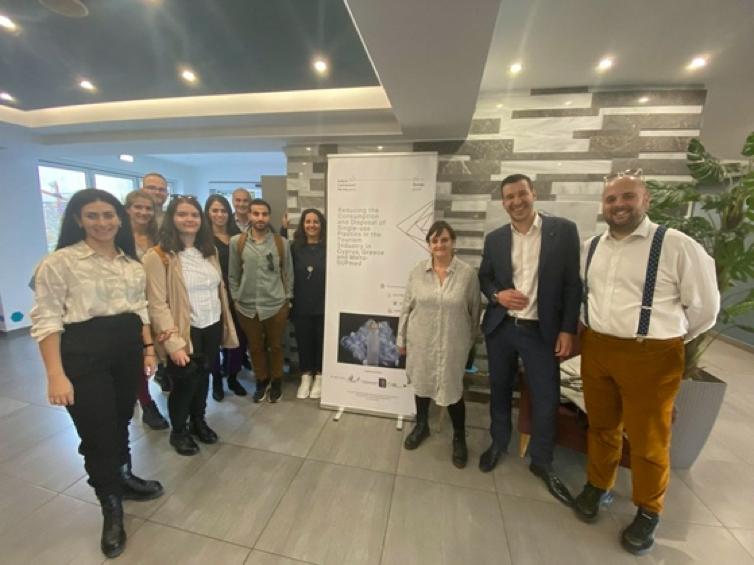


18
Regional Cooperation Magazine
SUPMed project will run until June 2023 with a total budget of 1,279,405.00 euros. The six partners taking part at the consortium of the project are Aspon Consulting Ltd – Leader Partners (CY), Heraklion Chamber (GR), Anelixis Development Consultants S.S.A. (GR), Cellock Ltd (CY), AIS Environment (MT) and Cyprus Hotel Association (CY). Upon completion of the project, the partnership of SUPMed project aims to reduce the consumption, disposal and impact of single-use plastics in the tourism sector in three Mediterranean regions (Cyprus, Greece, Malta) in line with the EU Directive 2019/904 for the reduction of the impact of plastic products.
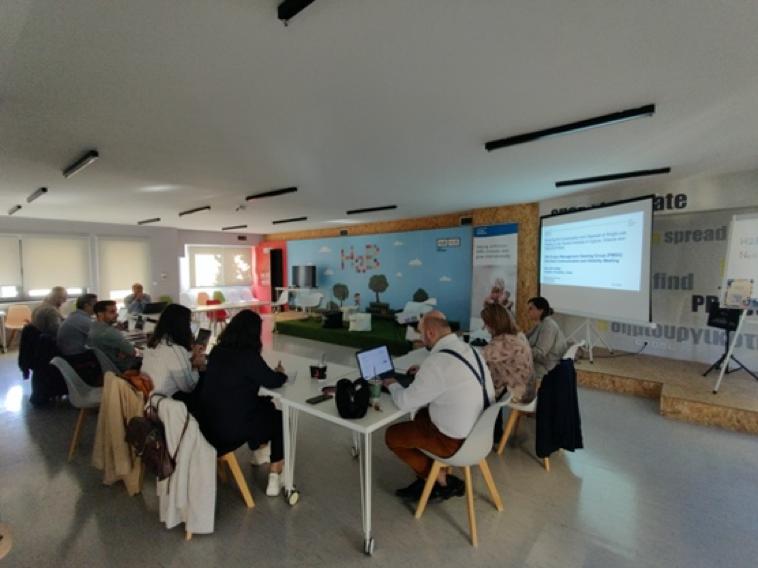
About the project:
The project consortium aims to reduce the consumption, disposal and impacts of SUP in the tourism sector in these three regions, in line with EU Directive 2019/904 on the reduction of the impacts of plastic products. Through this project, the partners will support samples of coastal tourist establishments in Cyprus, Malta and Greece (Crete) via pilots to move to sustainable resource-efficient business models. The establishments will identify and replace commonly-used SUP with environmentally friendlier, readily available and affordable alternatives. The pilot samples will be supported in phasing out and replacing SUP via a bespoke free web-based decision-support tool (DST) that will be developed. The DST will present viable and available alternatives to the most commonly used SUP, taking into consideration the cost and environmental impacts of each alternative across its life-cycle.
The project "Reducing the consumption and disposal of single-use plastics in the tourism industry in Cyprus, Greece and Malta" is funded by Iceland, Liechtenstein and Norway through the EEA and Norway Grants Fund for Regional Cooperation.

For more information on the project, Follow us on Facebook, Twitter and LinkedIn and visit our Project Website.
Following the completion of the pilot in each of the three regions, best practise guides will be developed that will present the findings of the pilots, the impacts of plastic waste on human health and the environment, how to reduce SUP in the tourism and other sectors and what environmentally friendlier and affordable alternatives are available. These guides will be disseminated to SMEs, NGOs, tourist establishments and other relevant stakeholders in the three regions and across Europe, as an additional support tool in replacing SUPs.
19
Regional Cooperation Magazine
Project SUPMed
Pilot tourist establishments in Cyprus, Greece and Malta
reduce the Consumption and Disposal of Single-use Plastics through the SUPMed Project
Since July 2020, partners from Cyprus, Greece and Malta worked together as part of the project titled “Reducing the Consumption and Disposal of Singleuse Plastics in the Tourism Industry in Cyprus, Greece and Malta”, also known as “SUPMed”. The Project provided innovative and sustainable solutions for tourist establishments to effortlessly reduce the consumption, disposal and impacts of Single Use Plastics (SUP) in the tourism sector in these three regions, in line with EU Directive 2019/904 (on the reduction of the impacts of plastic products). These solutions were tested by the ten tourist establishments in Cyprus, Greece and Malta through a pilot program. The results proved the effectiveness of the suggested recommendations and overall success of the project. The methodology, contribution of the pilot tourist establishments, impact of the SUP in the environment and human health and other relevant information is provided in the Best Practice Guide (available to download on line from https://www.supmed.eu/en/).
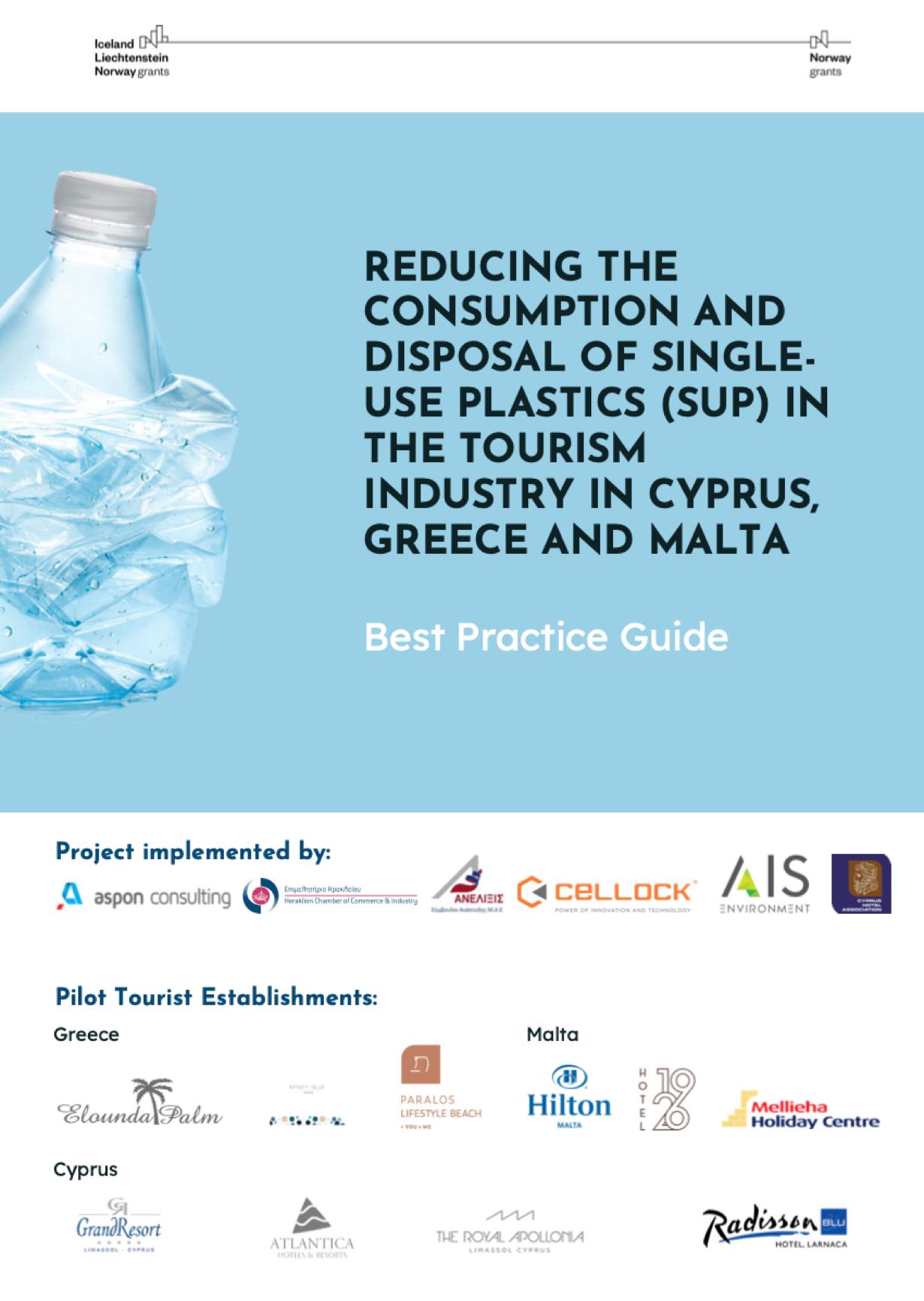
Tourist establishments across Europe can benefit from the project’s findings and deliverables to help them reduce SUP consumption and disposal, as well as guide them in a transition towards a more environmentally sustainable management style. It will help ensure that their operations are in line with the requirements outlined in the EU SUP Legislation.

20
Regional Cooperation Magazine
have successfully managed to
The project had three main deliverables:
• Decision Support Tool (DST)
The DST provides a platform for businesses/entities to assess the environmental impact of their current SUP product selection compared with available product alternatives. The DST does not focus solely on the natural environment, but also provides a cost analysis of the switch to alternative SUP products.
• Bespoke Action Plans
Following on from the collection of baseline data provided by the hotel staff on the consumption of SUP items (including data from the DST), interviews with hotel guests and staff and in-house observations, a Bespoke Action Plan was drafted for each of the pilot hotels (a total of 10 plans). The Action Plans provide an overview of the SUPMed project, a summary of the results of the data collection in the hotels and a series of recommendations to help the individual hotels move away from SUP items to more environmentally friendly, yet cost effective alternatives.
• Best Practice Guide
The Best Practice Guide aims to provide an overview of the impacts of plastic on human and environmental health, present the results of the pilot studies, review the available SUP alternatives and their environmental impact based on the DST and replicate the recommendations made in the individual Action Plans. Finally, the report summarises the lessons learnt from the project and apply them to the tourism industry as a whole, and other relevant industries, to help the European Member States move away from SUP consumption.
To find out more about the project and the Best Practice Guide, check out the project website.
More about the project:
The SUPMed project runs until June 2023 with a total budget of €1,279,405.00. The six project partners participating in the project are Aspon Consulting Ltd as the Lead Partner (CY), Heraklion Chamber of Commerce and Industry (GR), Anelixis Development Consultants S.A. (GR), Cellock Ltd (CY), AIS Environment (MT) and the Cyprus Hotel Association (CY). The project consortium aims to reduce the consumption, disposal and impacts of SUP in the tourism sector in these three regions, in line with EU Directive 2019/904 on the reduction of the impacts of plastic products. Through this project, the partners will support samples of coastal tourist establishments in Cyprus, Malta and Greece (Crete) via pilots to move to sustainable resource-efficient business models. The establishments will identify and replace commonly-used SUP with environmentally friendlier, readily available and affordable alternatives. The pilot samples will be supported in phasing out and replacing SUP via a bespoke free web-based decision-support tool (DST) that will be developed. The DST will present viable and available alternatives to the most commonly used SUP, taking into consideration the cost and environmental impacts of each alternative across its life-cycle.
Following the completion of the pilot in each of the three regions, a single best practice guide will be developed that will present the findings of the pilots, the impacts of plastic waste on human health and the environment, how to reduce SUP in the tourism and other sectors and what environmentally friendlier and affordable alternatives are available. These guides will be disseminated to SMEs, NGOs, tourist establishments and other relevant stakeholders in the three regions and across Europe, as an additional support tool in replacing SUPs.

21
Regional Cooperation Magazine
The 10 tourist establishments of the pilot sample of the project per country are:
• Cyprus:
• GrandResort
• Atlantica Mare Village Ayia Napa
• Radisson Blue Hotel
• The Royal Apollonia
• Greece – Crete:
• Elounda Palm Hotel & Suites
• Infinity Blue Boutique Hotel & Spa
• Paralos Lifestyle Beach
• Malta:
• Hilton Malta
• 1926 Hotel & Spa
• Mellieha Holiday Centre
The project “Reducing the Consumption and Disposal of Single-use Plastics in the Tourism Industry in Cyprus, Greece and Malta” is funded by Iceland, Liechtenstein and Norway through the EEA and Norway Grants Fund for Regional Cooperation.

To keep up to date with the project, follow us on Facebook, Twitter and LinkedIn and visit our project website.
Project SUPMed
22
Regional Cooperation Magazine
The WINGATE project helps Hungarian entrepreneurs with a free e-learning program

24.11.2022 – The weight of businesses with purely female owners is becoming more and more significant even in Hungary: while in 2021 14% of all registered domestic companies were managed by women, within a year this proportion climbed to 17%. However, there is plenty of room for improvement, as the number of businesses run by men is still twice as many, and according to last year's survey by the WINGATE project, women would most likely would like to expand their specific financial knowledge and business relationships in order to develop. The WINGATE project, an international business support program with a budget of around 2 million euros, uses research results to support women in the realization of their business goals with training and networking events, have launched their educational platform in November, which helps beginning and advanced entrepreneurs, as well as angel investors, with free thematic learning materials.
helping these entrepreneurs to become business angels themselves - although it is clear from the above, it would be in our common interest.
Tangible knowledge and networking - this is what women need to get started
In our constantly changing, uncertain and crisis-filled world, the abilities and skills in which women generally excel are increasingly coming to the fore in business life: such as empathy, self-awareness or social skills. Moreover, according to many, female leaders can help humanity in the most effective way to overcome the climate crisis. According to the newly adopted directive of the European Parliament, by 2026, 33% of all management positions in companies must be occupied by women, although this does not yet apply to companies employing fewer than 250 people. There is definitely progress, however, few people are still concerned with how to effectively support women in starting a company and then in sustainable growth, or even in
The WINGATE project was launched in 2020 under the leadership of the Hungarian SKC-Consulting Kft. with the aim of supporting novice and more experienced female entrepreneurs with knowledge transfer, training and networking opportunities. The project, realized with a contribution of 2 million euros from the European Economic Area (EEA) and the Norwegian Regional Cooperation Fund, helps women in Moldova, Norway, Romania and Serbia to realize their business ambitions, in the areas where they need it most. As a first step in this, a comprehensive international survey was prepared in 2021 with the participation of nearly 1,500 respondents, which accurately assessed which skills and knowledge could be developed to enable more women to enter the challenging world of entrepreneurship. The WINGATE project started compiling target-specific knowledge materials and training based on the answers received.
„The female entrepreneurs unanimously reported that the administrative obligations and the legal environment are/were the biggest challenge for them when starting a company, and this is definitely an area in which we can provide them with effective help with proper education, the collection of available and understandable transfer of information. They are also uncertain about how their idea can be translated into a successful business in practice and how they can present it to an investor or a business angel. Acquiring
23
Regional Cooperation Magazine
Only a fifth of domestic companies are managed by women in Hungary
financial knowledge is therefore still a key issue, but at the same time it has become clear that development is also necessary in relation to soft skills: communication, self-awareness or even negotiation techniques are more important when building a successful business than we think.” - shared by Ágnes Puskás, head of the WINGATE project
The key issue is education: digital knowledge awaits beginners, experienced enterpeneurs and business angels
ismeretek fontossága már a mainstream médiába is betört szórakoztatóedukációs tartalmak formájában, illetve egyre több pozitív példát hallani olyan nőkről, akik szinte lehetetlen helyzetből váltottak szakmai profilt és indították be cégüket. Mi őket szeretnénk támogatni” – teszi hozzá Puskás Ágnes.
One of the main objectives of the WINGATE project was the creation of an online knowledge platform based on needs and demands, tailored to different entrepreneurial phases, in which the preparation of a comprehensive and very instructive questionnaire survey was considered an important milestone. Thanks to the persistent work of the project partners, a free digital educational platform has been created that can effectively contribute to the most important mission, so that women can more easily start on the path to becoming entrepreneurs and contribute to the prosperity and development of European societies with their valuable work. In addition to the fact that the ePlatform helps women start a business, it also provides great support to those who have already started their business and want to develop it. After registration, 7 different "lessons" are currently available on the site - partly in English, partly in Hungarian - and in specific topics that help start-up entrepreneurs, those planning to expand their business, and angel investors. The goal is to continuously expand the available curriculum.
Anyone who digs into the otherwise easy-to-consume materials can get practical tips on how to prepare a good business plan, what are the steps that must be followed in the critical 100 days after founding a company, can get pointers for entering foreign markets and business development, while the female business angels can gain complex knowledge about the entire innovation ecosystem. There is enormous economic potential in women, who are not supported in their ambitions by their wider, or even often narrower environment, and after starting a family, these career aspirations are pushed even further into the background. However, it is good to see that the importance of entrepreneurial skills has already entered the mainstream media in the form of entertainment-educational content, and to hear more and more positive examples of women who changed their professional profile from an almost impossible situation and started their own company. We want to support them” – adds Ágnes Puskás
In addition to visiting the education platform, those who are interested should subscribe to the regular newsletter of the WINGATE project, in which additional useful information and tips are available.
„Aki beleássa magát az egyébként könnyen fogyasztható anyagokba, gyakorlati tippekhez juthat arról, hogyan készül egy jó üzleti terv, mik azok a lépések, melyeket mindenképpen követni kell a cégalapítást követő kritikus 100 napban, támpontokat kaphat a külföldi piacokra való belépéshez és a vállalkozásfejlesztéshez, míg a női üzleti angyalok komplex ismereteket szerezhetnek a teljes innovációs ökoszisztémáról. Óriási gazdasági potenciál rejlik a nőkben, akiket a tágabb, sőt, gyakran a szűkebb környezetük sem támogat ambícióikban, a családalapítást követően pedig még inkább a háttérbe szorulnak ezek a karriervágyak. Jó viszont látni, hogy a vállalkozói
About the WINGATE project
The consortium formed for the WINGATE project, whose members from Hungary are SKC-Consulting Kft. and Women/Business/Angels Association, won a tender worth of 1.824.320 Euro from the EEA and Norway Grants Fund for Regional Cooperation (EEA and Norway Grants Fund for Regional Cooperation) Additional partners are the Serbian Venture Network (SEVEN), the Romanian National Association of Entrepreneurs (ANAA) and the Norwegian Kvinner i Business (KIB). Their goal is to create a green, competitive and accepting business environment in Central and Eastern

24
Regional Cooperation Magazine
Europe. To this end, the WINGATE project is intended to support female entrepreneurs in the region. The website of the project was created in English, but in Hungary, a significant part of the surveys, events, teaching materials and trainings will also be available in Hungarian.

wingateproject.com
Facebook LinkedIn Project
WINGATE
25
Regional Cooperation Magazine
Ground-breaking digital crowdsourcing initiative brings “the wisdom if the crowd” into the decision making process on air quality in Europe

CODE Europe is a project that empowers citizens to co-create policies with decision makers on local, national and EU level. It uses digital crowdsourcing, a participatory democracy mechanism that takes advantage of the availability of technological solutions to solicit and analyse “the wisdom of the crowd”. So far, some 100 000 citizens across Europe have taken part in the process, aiming to influence decision making up to the level of the EU Ambient Air Quality Directives, which is currently under review. The Crowdsourcing on air quality is running from 1 January 2022 to 31 December 2022 in 6 cities across Europe: Athens (Greece), Riga (Latvia), Tallinn (Estonia), Lisbon (Portugal), Burgas (Bulgaria) and Budapest (Hungary). In addition, a similar activity funded through the Europe for Citizens Programme is being conducted in Amsterdam (The Netherlands), Brussels (Belgium), Berlin (Germany) and Podgorica (Montenegro).
During a Conference in Ljubljana held on November 22, 2022 participants shared their thoughts what makes CODE Europe unique among other projects about citizen engagement with environmental decision-making:
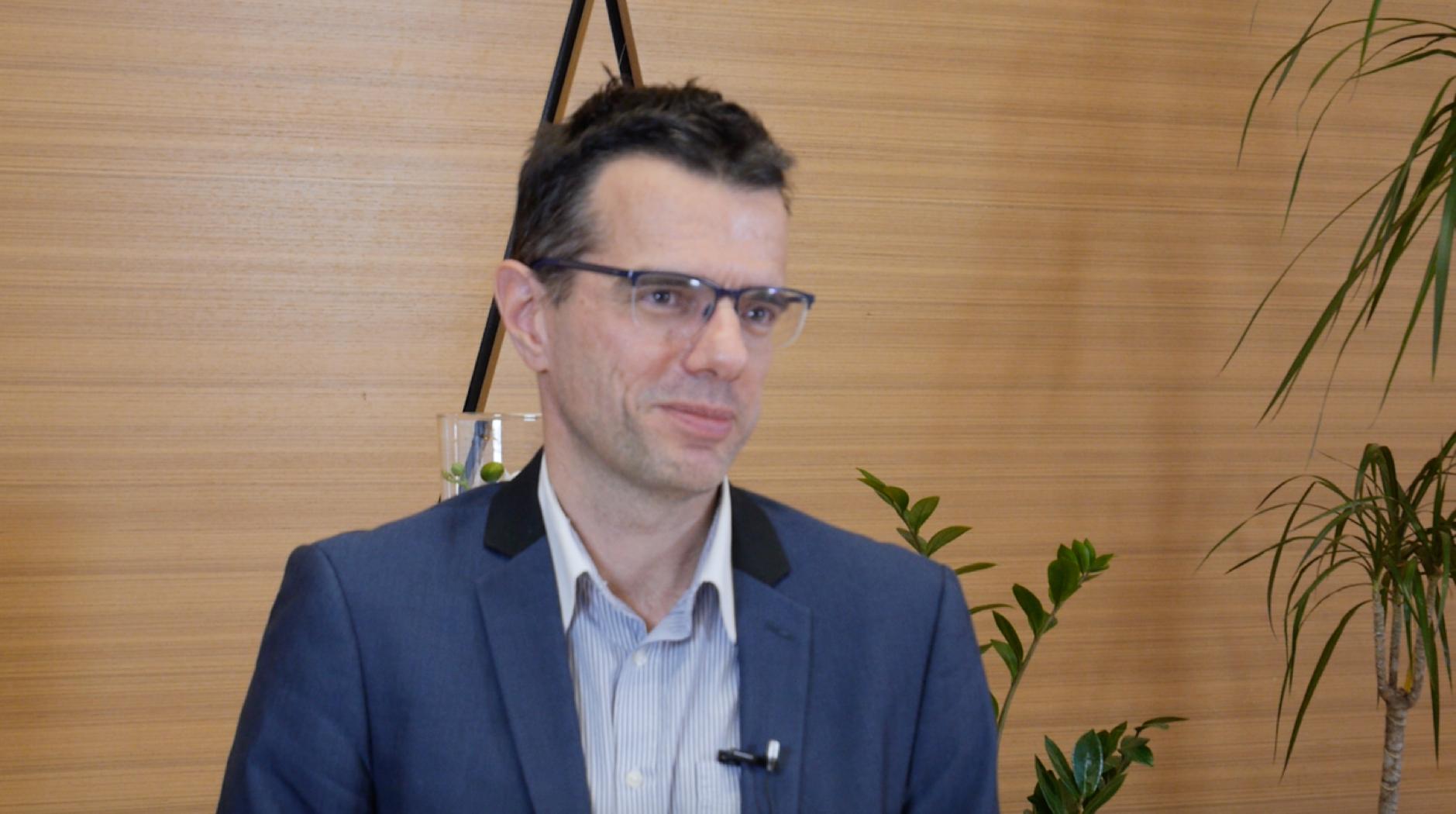
Air quality is an everyday topic for many of us, but it is also something very abstract. If you have never thought about how to fight air pollution, what are the possible tools, the potential actions that people can take against air pollution, then it can be quite difficult to find real-life solutions.
As the CODE Europe project is mainly an online initiative, we had to think about the possibilities we have in the online world. Of course, social media was the main platform for us to promote the campaign. We did several tests, created videos and other graphic materials, analysed existing survey data to engage people through fact-based information. We tried not only to ask for their inputs, but also to give something back in exchange for their
26
Bence Ságvári, Centre for Social Studies, Hungary, CODE Europe Consortium Leaders
Regional Cooperation Magazine
participation. To start with, we collected interesting, important and useful facts from Europe, Hungary and Budapest about people's attitudes towards air quality and air pollution and environmental protection in general. I think that was the major challenge we tried to solve: how to motivate people.
Looking at the crowdsourcing campaigns in all the cities we work with, it's also a very interesting exploration of how we as a consortium can run a campaign in countries that are very different in their historical traditions, political culture and environmental consciousness.

For me, as a sociologist and researcher, this is one of the most interesting parts of the project. What kind of communications channels, direct messages and broader concepts of the environment will work in 6+4 different cities? We had to develop a general tool, but also custom campaigns. In 2023, which is the last year of the project we will focus on analysing how our tool and approach worked in these very different social and political contexts.
For years we have been studying digital democracy and how citizens can actually use e-participation tools to reach out to their policy makers at the local, at the national, and especially at the EU level. A few years ago we've been doing some research about how we can define the success of digital democracy tools and how citizens can also have more impact on policies at the EU level and work together with their representatives to cocreate legislation - Directives etc.
We found out that the EU level, apart from consultations or the European citizens' initiatives or petitions to the European Parliament there was still something missing: a real e-participation tool for citizens to constantly set the agenda and to also co-create policies with their policy makers and representatives.

The CODE Europe project was created in order to test out a real transnational crowdsourcing that would allow citizens to have a say on air quality in Europe. The project started last year with a research component. There was an assessment framework that was built in order to define the success of eparticipation and there was also the creation of ethical guidelines for social listening. In the second year of theproject we launched a transnational crowdsourcing in 10 different cities across Europe together with a sister project called DIGIDem which is funded by the Europe for Citizens programme.
The crowdsourcing on air quality is divided into four different phases. In the first phase, for the first three months we have asked citizens to identify all the problems that they have in their daily lives related to air quality and pollution. We received more than 2 300 contributions that were actively given by citizens identifying what real issues they have in their daily lives due to the pollution of their cities. In the second phase we had the problem-solving part, so after the identification of problems we asked citizens in these 10 different cities to tell us how they want their local, national and European policy makers to tackle these problems on the local level and the national level and the European level around air quality issues. We received almost 800 active
27
Elisa Lironi, European Democracy Director, European Citizen Action Service, Belgium
Regional Cooperation Magazine
contributions of solutions that citizens would like to see.
In the third phase we had around 900 citizens voting for the top 10 solutions that they think should be a priority, especially at the EU level, to be implemented as soon as possible. These citizens' preference were decided amongst 30 different solutions; and the top 3 were around taxation of big companies that are polluters or supporting renewable energy infrastructure and also supporting cycling and walking infrastructure in their cities. In the fourth phase we're asking citizens to co-create with experts on texts that will be then sent next year to all EU legislators and representatives that are actually working on air quality policies. The European Commission is currently revising the ambient air quality Directive, that sets limits on pollution in the air that people breathe.
often observed during my practice and theoretical research was that there is a lot of reinventing of the wheel in terms of how to use in digital technologies for enhancing democracy. What I would like to say is that although digital technology is developing from the Internet 1.0 to 2.0, social media and web 3.0, and also now the blockchain and other technologies, which are progressive in terms of how the humanity is developing digital technologies, the fundamental core issue of democracy and how people are governing their society is remaining the same, so the question here is are we making progress with developing digital technologies in terms of also developing democracy?
Citizens should be a part of this discussion and we hope that through this transnational crowdsourcing next year we can advocate actively for what citizens have been calling for in this whole year of collecting their ideas. We will make sure that these ideas reach MEP's and European Commission officials working on environmental issues.
What I like with the CODE Europe project is that it is trying to experiment with a new approach to e-participation called crowdsourcing. This is a new concept which is trying to generate the wisdom of the crowd in terms of solving society problems. I think this approach could be very beneficial first of all because it takes into account the wisdom of the crowd.
The wisdom of the crowd is very important, because the current social and political problems are very complex and there is no one clear solution for them, so you have to take into account different options, different solutions and the best way to find and develop them is to embrace the wisdom of the crowd.
Secondly, digital technologies have advanced to this degree that they can support the digital crowdsourcing, the wisdom of the crowd generation; however, one of the key added value of the CODE project is that it makes crowdsourcing systematic, by having four stages of bringing the knowledge of the citizens from basic ideas to generation of the solutions into the policy proposals.
Such proposals have broader legitimacy and also very good potential to be implemented, because many regulations which are being drafted in the "business as usual" democratic processes are having issues with implementing in the field and also at the end of the day bringing the real added value to the quality of life of the citizens.

I have been involved into electronic participation and digital democracy research and in practical projects for two decades now, and one thing that I
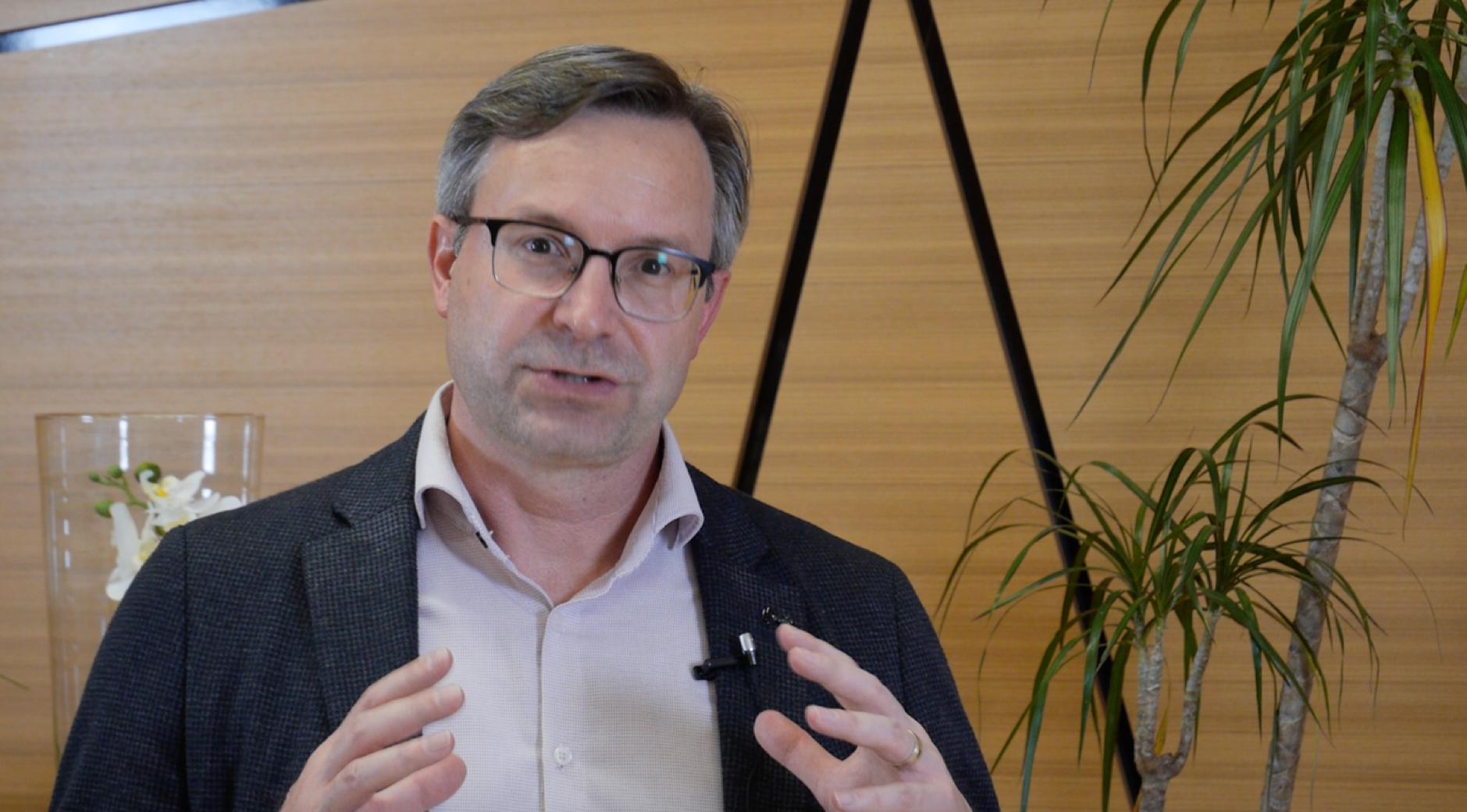
28
Simon Delakorda, Director, Institute for Electronic Participation, Slovenia
Regional Cooperation Magazine
Project CODE Europe
Knowledge exchange with the Circular Based Waste Management project

Back to basics – Regional Cooperation
Thinking back at the purpose of the EEA and Norway Grants Fund for Regional Cooperation, they aim to do exactly that: support Cooperation. More specifically, the Fund has enabled collaboration across borders all over Europe with the purpose to solve common challenges in the environmental, social and economic arenas.

Knowledge exchange within our project
Learning and transfer of knowledge is at the core of the Circular Based Waste Management (CBWM) project ( http://circular-waste.eu/ ). The project’s purpose is to examine innovations in waste management with the ultimate target to implement systems that are in line with a circular economy. The project is being carried out by 5 partners from 4 countries, (Lithuania, Estonia, Ukraine and Norway), three of which are municipalities, one is a waste management centre and one an expert in circular economy.
Partners are studying example cases and different aspects of circular economy practices taking place throughout Europe. Practically, this is carried out either through inviting experts to present online through webinars or through study tours, where project partners travel to different locations to experience first-hand how these solutions work.
Following visits or webinars, presentations of speakers are shared with participants to help maintain lessons learned long term. In addition, communication has played a key role through documenting experiences in the form of articles and sharing these on the project website which is openly accessible. Partners are then encouraged to translate and share with their audiences locally.
Knowledge exchange and cooperation with other projects
Cooperation and knowledge sharing is always most beneficial when it is
among as wide a circle as possible. At the CBWM project, we have already had the opportunity to collaborate with two projects under the Regional Cooperation Fund in very different ways.
Our first, was during the virtual Regional Funds Week event that took place fully online in December 2021. Along with the SUPMed project (https:// www.supmed.eu/en/) we held the round table discussion on the topic “Applying circular economy through waste management and recycling”. Both projects are tackling waste issues from different perspectives: for SUPMed from the point of view of the tourism industry, for CBWM from the municipality and of a waste management centre. The discussion gave the opportunity to hear each other’s perspectives on the topic and understand common challenges as well as solutions, particularly through changing behaviours and dissemination in the overall goals of achieving sustainable or circular practices.
29
Regional Cooperation Magazine
Our second collaboration, with EU-WATERRES (http://eu-waterres.eu) and TBFVnet (https://www.tbfvnet.eu/) was born out of the onset of the war in Ukraine. Among the three projects, there are partners in Ukraine and Russia and this collaboration was based on writing a common article for the April 2022 Issue of the Regional Cooperation magazine to highlight emotions, the situation and how regional cooperation has been affected by the war (https:// regionalcoopmag.net/2022/04/29/regional-cooperation-projects-and-the-warin-ukraine/).

A series of three articles have been produced on the topic which can be found on the project website. (One can start with Part 1 here: http://circularwaste.eu/index.php/2022/11/23/santas-role-in-a-circular-economy-part-1-thechristmas-tree-and-ornaments/ and follow the links to parts 2 and 3 from the article).
Key factors that encourage cooperation
From these experiences we have found that projects are open to collaborations and once a common element has been identified, seemingly unrelated projects have a lot to learn from each other.
The 2022 Annual Seminar provided an opportunity to meet representatives from the projects we had collaborated with and others. It further allowed sharing insights not just with projects under the Fund for Regional Cooperation but also the Fund for Youth Employment. This was made possible by having found as a common factor the involvement of youth in some of the Regional Cooperation projects as well as providing a workshop which was useful regardless of the project topic from an administrative point of view.
Support by the fund and the fund operator by creating opportunities for networking that can create collaboration is paramount. Being a central point of contact and having an overall view of all the projects, a first “nudge” in bringing projects together can help spiral collaborations that could potentially last for years.
Open knowledge sharing
Circular Economy is a topic that concerns all sectors and it is set to become part of our daily lives. Among the learnings in our project has been that achieving it requires a change in behaviours and small actions that will add up to big changes.
Being held so close to Christmas, the 2022 Annual Seminar of the Regional Funds projects that took place in Brussels, offered an opportunity to share small but actionable tips to minimise waste during the holidays. There, we held a presentation focused on different types of waste generated during the festive time and how each person can prevent it by changing small things.
Maritsa Kissamitaki – Circular Based Waste Management Project
Project Circular Based Waste Management
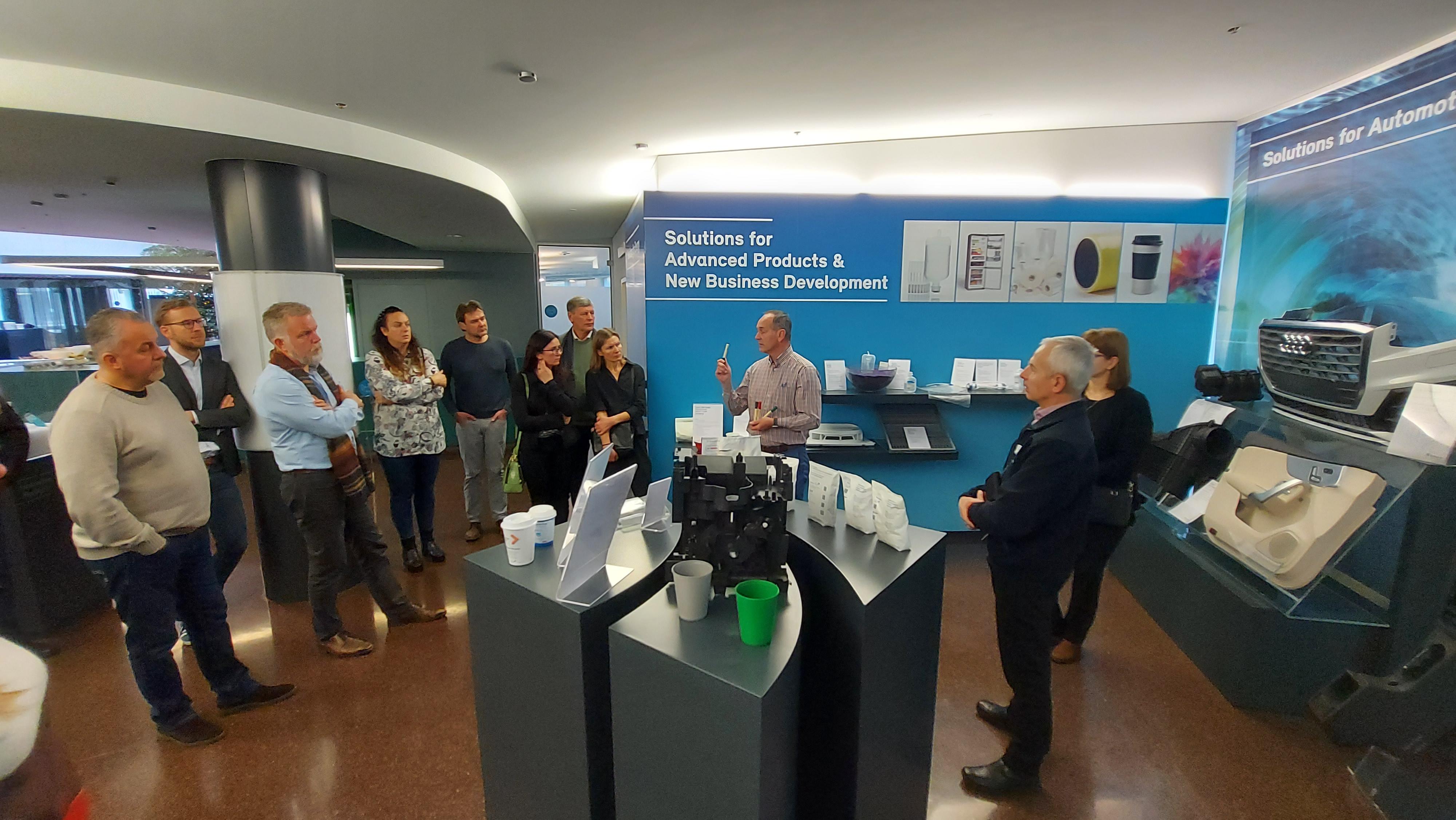
30
Regional Cooperation Magazine
Network and Communication Transferring of the BLUE-GREENWAY
BLUE-GREENWAY Project in 2022 has participated i) in several International Scientific Conferences as presenters of scientific results produced within the Project, ii) at SMEs' and Stakeholders' external events with roll-up presence, iii) has organized two Open Day Events in Cyprus and Romania, iv) has organized two informative online workshops from Norwegian Partners and v) at a Circular Dialogue devoted to the Project within a famous International well known Mediterranean Conference where stakeholders, SMEs, Universities, and Policy Makers attended and participated. All the above actions have broadcasted the presence of the BLUE-GREENWAY in an international network!
Environmental Engineering of the University of Patras, students are encouraged to share their remarks, results, and comments with the rest of the team. The BLUE-GREENWAY Project aims to engage Youth in scientific research projects, from the initial planning and grant writing phases through project completion and dissemination of results. The BLUE-GREENWAY aspires to the notion that young scientists can offer valuable information in the development of scientific research. Developing a youth-friendly space defined by a safe, welcoming atmosphere in which the perspectives and contributions of all parties are acknowledged and valued is essential to engaging effectively for young researchers.
In parallel, the Annual Seminar Event with the title “Celebrating the European Year of Youth”, organized by EEA and Norway Grants, has strengthened the communication of the Fund for Regional Cooperation and Fund for Youth Employment projects. The BLUE-GREENWAY Project was grateful to participate in the event recognizing that partnerships and cooperation are critical! The event allowed Projects of Regional Cooperation and Youth Employment to meet in person for the first time after covid-19 particular challenges and discuss coordinated approaches to surpass common challenges!
The BLUE-GREENWAY Project strongly supports exchanges with other Regional Cooperation Projects interested in water management, water pollution, and ecosystem-sustainable circular approaches for knowledge exchange. Our study has revealed that numerous Regional Areas suffer from eutrophication and can benefit from joining next year's Living Labs, Workshops, or special visits in the Pilots of the Project.

In parallel, the BLUE-GREENWAY encourages young students to be involved in the Project's scientific research. Within the Laboratory of

31
Regional Cooperation Magazine
In the next period, the BLUE-GREENWAY Project will develop living labs to inspire action aligned with local communities and promote place-based environmental action, documenting sustainability efforts and learnings in the local context. Furthermore, developing inclusive insights on local environmental issues from various groups, connecting young people, and building networks among diverse environmental pathways will undoubtedly strengthen the positive footprint of the Project. In that way, the BLUEGREENWAY suggests reconnecting with our roots, exploring what is around us — current efforts, issues, and opportunities, near and far and using imagination and foresight to shape inclusive futures. We encourage everyone interested to contact the Project in the email of Project bluegreenway@upatras.gr and subscribe to our communication pages found at the end of the article.
https://blue-greenway.eu/ http://blue-greenway.upatras.gr/ https://www.facebook.com/eeabluegreenway https://twitter.com/home?lang=el

32
Regional Cooperation Magazine
Project BLUE-GREENWAY
Digital Vineyard Management - Good Practice of Data Analytics
Being a winegrower is rewarding, but there is a lot of effort that goes into taking care of the vineyard that makes it extremely unpredictable and hard work. Therefore, being a vineyard manager is anything but simple since there are so many aspects that need to be taken into account in order to produce the best possible quality grape. When it comes to vineyard management, winegrowers need to play multiple roles: from meteorologists, agronomists, chemists, machine operators, mechanics, financial planners, and work organizers. This practice often places a burden on the vineyard managers that stops them from taking care of the big picture, but instead forces them to micromanage different processes. This is the case in small family wineries, but also in the ones like Tikves, which have more capacity and vineyards in different locations that need to be managed.
The data that is being processed focuses on real-time verification and control of the health of the grapes – through statistics of the percentage of damage for each vineyard; the quality of the grapes – through sensory analysis of the berries and other parameters; as well as the production potential for each plot - though estimate of production starting from pruning.
Now Tikves Winery has a database with all the observations of its vineyards and they are available to view in real time.
Benefits and wider influence of digital vineyard management
In 2022, Tikves took the next step towards simplifying the vineyard management with the use of computer software available through a mobile application. Committing to such a crucial change is not an easy choice, but it seems it is an inevitable one. There are multiple softwares available today and they all have in common the same goal – to support vineyard managers in making smart decisions based on data. The need arises from the fact that up until now information can be overlapping in different sectors which prevents the managers from seeing a pattern, or sometimes the information is transferred through word of mouth and gets lost.
Features of the software
The software that is being used in Tikves Winery supports the team working in the vineyards. The information collected in the vineyard will no longer be "lost«, but is archived and shared in real time on the company network, so as to have a global view of the vineyard and the company at all times.
The winegrowers, vineyard managers, and viticulture specialists are the main beneficiaries from the use of the software. They are now set to improve their performance, grow better quality and higher quantity grapes, control vineyard management work activities, and monitor bioclimatic information of the vineyards. They have better insights into several vineyard operations, and based on the collected data can make better decisions.
Since these people are the main contributors towards the system, they are fully onboard with the process and engaged in every step of the way. They are being trained by the developers of the software from the way data is collected in the field, all the way to the data interpretation.
The software itself provides feedback which is easy to interpret and it furthermore helps with the overall management of the vineyards. A responsive system affects the lower production costs and the smarter work management.

33
Regional Cooperation Magazine
Foto credit: Tikves Winery
In the end, incorporating such system will have even greater effects on the long run. Not only that this data can be used to know when to irrigate or protect vines against disease, but it can also help improve grape quality over time. It is safe to say that the wider influence of implementing this system is yet to be seen.
Digital knowledge exchange

Using this software is still in its infancy at Tikves Winery, since most of time is being spent learning and collaborating with the developers of the software. Still, Tikves is tracing the way for the rest of the wineries in the region towards a digital future.
anagraphics, phenology, product estimates, crop healthiness and quality, as well as agronomical advice on Lobesia botrana management.
The main purpose for using a vineyard management software is to make decisions based on completely objective information from the vineyard, instead of an opinion or a rumour. This potential has already become an integral part of the vineyard management and it can be easily replicated no matter the size of the winery or the type of vineyards because it is applicable for conventional, organic or biodynamic vineyards. The knowledge gained from this transition can be of value to other wineries but also institutes and researchers because the basis of it is in the data.
Project Uncorking rural heritage: indigenous production of fermented beverages for local cultural and environmental sustainability
In the case of Tikves, the software support was focused on specific areas such as: creation of vineyard maps, performing observations, vineyard
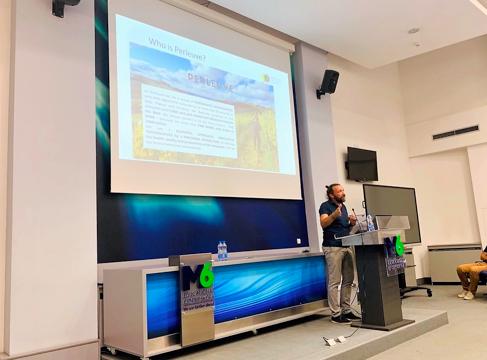
34
Regional Cooperation Magazine
Interborder and inter-agency cooperation to solve common problems: The need to tailor best practices in the P/CVE field
As recent events have demonstrated, apparent localised problems have broader consequences and impacts. In fact, the collateral consequences of the globalisation process have fostered a revamped sense of insecurity and risk. The culmination of this phenomenon is a shared feeling of continuous dynamic threat, no longer confined to national borders. This cross-border threat is especially pressing when dealing with security hazards. Such became clear as hundreds of European citizens left their home countries to join foreign conflicts, mainly in the Middle East and Ukraine. As these foreign fighters are now returning, a shared sense of numb threat was elicited, causing rigid security barriers to be reshaped.
meso, and micro cooperation schemes, which require the active participation of various agencies, institutions, stakeholders, and actors.
In the security field, cooperation is pivotal, as it allows the cementing of transnational and multi-sectoral relations, which in turn provide the required common answers to the complex, faceless and borderless challenges faced.
Mobilising local stakeholders in P/CVE cross-border cooperation
The same principle of cooperation applies to the P/CVE field since its major challenges are transnational in nature. They present regional similarities and require innovative co-joint work at the macro level and at the regional meso and micro levels.
However, to deliver adequate security and P/CVE solutions, significant attention needs to be placed on activating and mobilising the local stakeholders. Despite the common challenges, no suitable solution can follow a one-size fits all approach., Hence, practices must be adapted to the local setting, reflecting context-specific circumstances and needs.
For these efforts to be successful, various organisations, institutions and stakeholders need to be mobilised, activating both top-down and bottom-up approaches in inter and multi-agency cooperation solutions. In this strategy, the local level is prioritised to develop tailored, effective, and efficient responses.
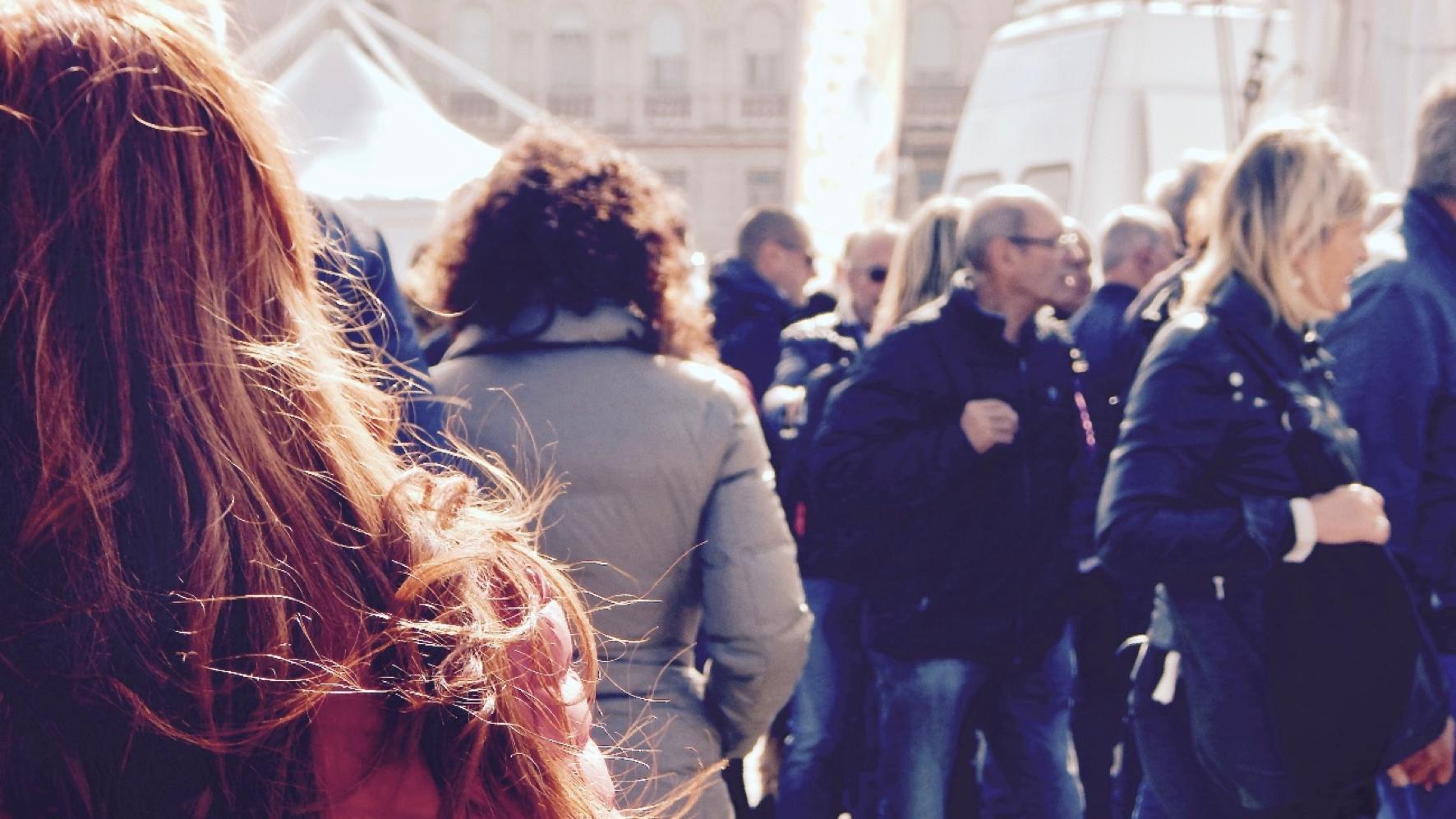
In a fluid and borderless Europe, different countries have been called to cooperate closely. This inter-border collaboration translates into macro,
To this effect, a multitude of actors across governmental and nongovernmental levels can be highlighted as key agents, including security institutions and professionals, such as law enforcement, judicial, correctional

35
Regional Cooperation Magazine
and policy-making bodies. However, civil society institutions, health and educational services, alongside the community itself, can and should be emphasised, allowing for an integrated knowledge transfer with practical reflections.
• Account for diversity, mainly at the local level, understanding how context-specific characteristics impact the devised solutions.
• Devise information-sharing schemes, easing communication, where stakeholders are given different pre-established roles, and are provided with a clear understanding of the procedures to be followed.
Therefore, to create effective, sustainable solutions in cross-border and crosssectoral cooperation, a whole-of-society approach must be activated. It requires an emphasis on dialogue, collaboration, and partnerships, for which trust and knowledge are paramount.
However, in the security realm, especially in the P/CVE field, cooperation can be challenging within and beyond national borders, due to the topic's sensitivity. This is the gap that the HOPE – ‘Holistic Radicalisation Prevention Initiative’ – is actively aiming to respond to.
The HOPE initiative – A step forward to cement cross-sectoral cooperation
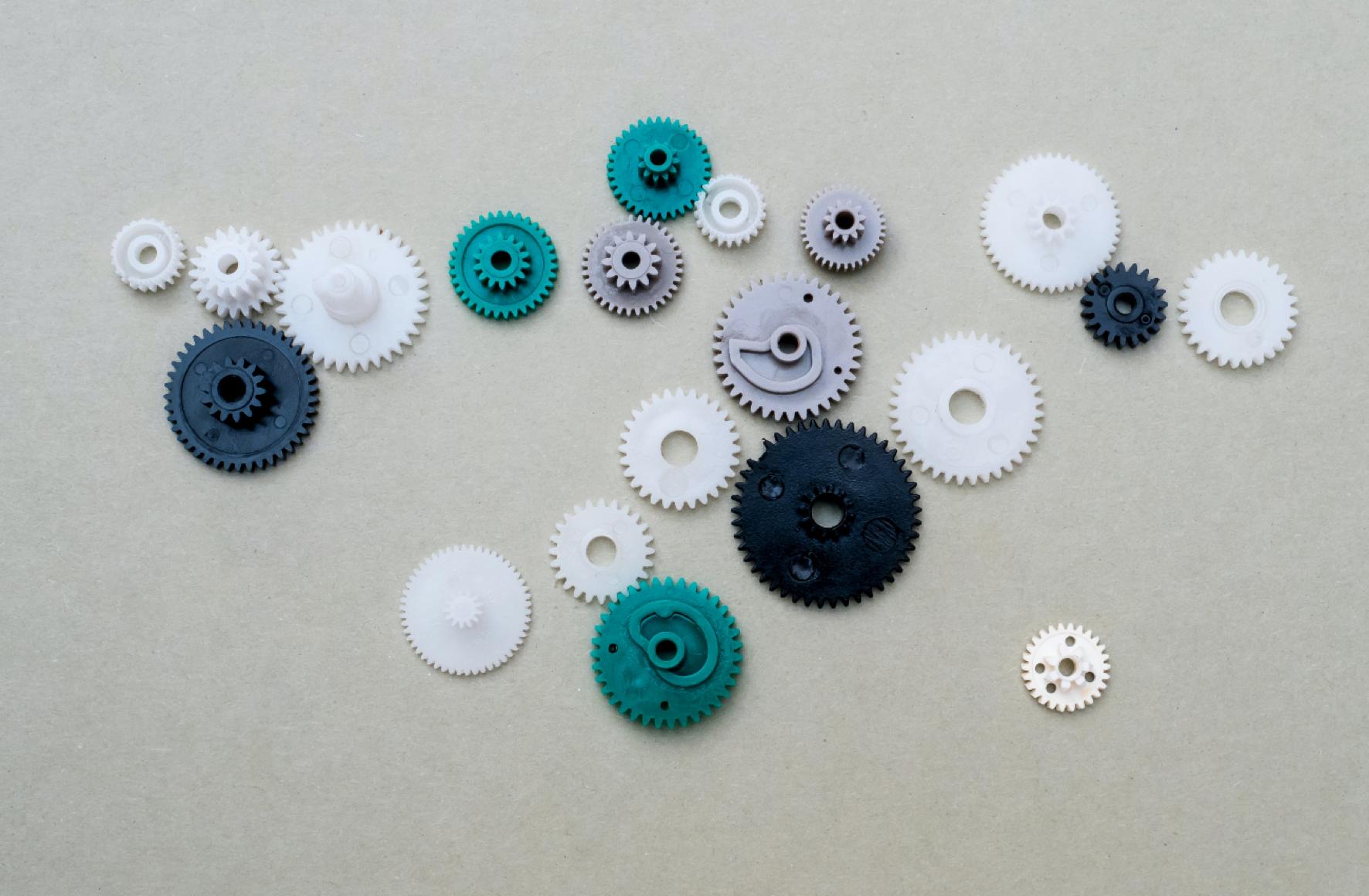
Despite the evident need to adopt a cross-sectoral approach, its practical application is often demanding since trust, information sharing, and specific competencies can be lacking. Such is especially concerning in the security and the P/CVE fields, where a culture of classified information is typically found across different jurisdictions and institutions, limiting the willingness to cooperate. To mitigate these barriers, various recommendations have been put forward by international bodies, sharing core characteristics, namely:
• Build trust and professional relationships with different stakeholders from different levels, cementing trust based on professional roles instead of personal acquaintances;
• Develop a joint base of grounded and comprehensive knowledge in which different professionals know how to work towards the same goal, encompassing a shared language script and tools;
The HOPE project recognises how security challenges are common problems for which a joint integrated action is required. However, it acknowledges that this integrated action must first listen to local and contextual specificities. Hence, and considering the need to develop cross-border and cross-sectoral cooperation, the HOPE project has cemented a Network dedicated to cooperation and information-sharing efforts.
By bringing various practitioners from different countries, institutions and levels, the HOPE Radicalisation Network is establishing new communication routes. The platform is allowing new trust relations to flourish, and providing its members with the right opportunities to exchange knowledge and practices towards innovative transparent solutions.

36
Regional Cooperation Magazine
The HOPE – Holistic Radicalisation Prevention Initiative is led by IPS_Innovative Prison Systems (Portugal) in partnership with the University College of Norwegian Correctional Service (Norway), Agenfor International Foundation (Italy), the Euro-Arab Foundation for Advanced Studies (Spain), the Bulgarian Association for Policy Evaluation, the Bulgarian General Directorate "Execution of Sentences”, the Bucharest-Jilava Penitentiary (Romania), the Helsinki Committee for Human Rights (Serbia) and the Slovenian Probation Administration (Ministry of Justice).
For more information about the HOPE project, please visit www.hoperadproject.eu. To join its network, signup at www.hope-radproject.org/hoperad-network .
References
Moreover, to solidify a cross-sectoral line of work in which different practitioners and agencies share a knowledge base, the HOPE project is now beginning to pilot its newly-designed, multi-disciplinary, and tailored training programmes.

By capacitating different professionals in critical skills, the project stresses the importance of creating a continuum of intervention and support, whilst ensuring its long-term sustainability and impact. Professionals from the prison, probation, and communitarian settings from Bulgaria, Romania, Serbia, and Slovenia will be able to comprehend international best practices and know how to tailor them. This will allow them to align with the European Union's sustainable integrated cooperation goals.
Project HOPE – Holistic Radicalisation Prevention Initiative
Barnett, M. (1995). The United Nations and global security: The norm is mightier than the sword. Ethics & International Affairs, 9, 37-54; Canters, F. & Donk, M. (2019). Building bridges. Radicalisation Awareness Network. https://ec.europa.eu/home-affairs/system/files/2019-08/ ran_exit_pp_building_bridges_prague_050619_en.pdf.
McCall, C. (2013). European Union cross-border co-operation and conflict amelioration. Science and Polity, 17(2), 193-216; Organisation for Security and Co-operation in Europe. (2020). A whole-ofsociety approach to preventing and countering violent extremism and radicalization that lead to terrorism: A guidebook for central Asia. OSCE. https://www.osce.org/files/f/documents/a/7/444340_0.pdf
Pandey, N., Conick, H. & Sagar, A. (2021). Beyond technology transfer: Innovation cooperation to advance sustainable development in developing countries. WIREs Energy and Environment, 11(2); Radicalisation Awareness Network. (2016). Multi-agency cooperation. [Ex post paper]. RAN. https://ec.europa.eu/home-affairs/system/files/2016-12/ ran_pp_multiagency_cooperation_around_radicalised_offenders_stockholm_24-25 022016_en.pdf;

37
Regional Cooperation Magazine
With the inclusive developmental activities, we are reaching the better health of the children with disabilities in Bosnia and Herzegovina
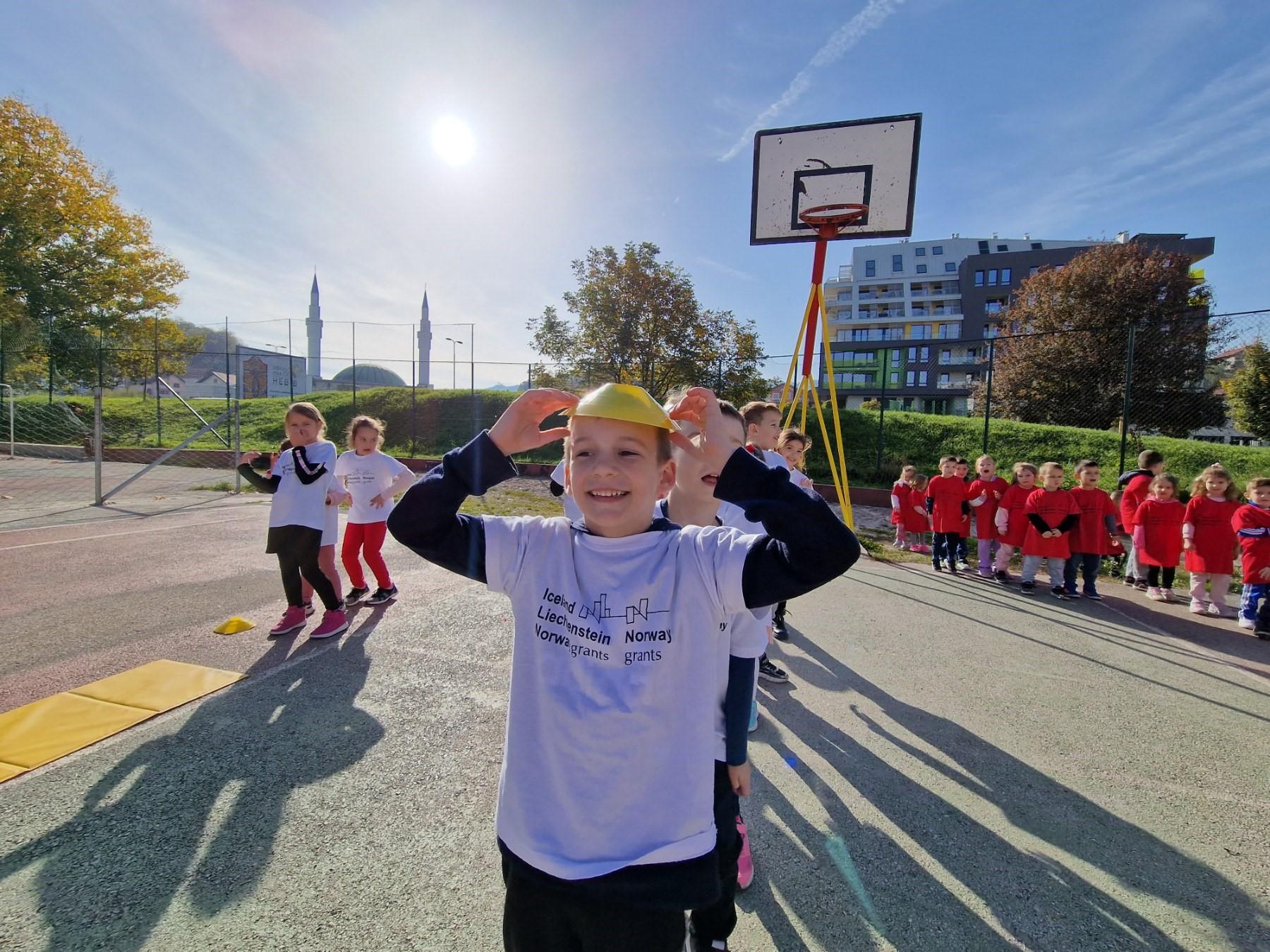

the persons who are the most involved in everyday activities of their children. When you have a child with a disability you want to make their everyday life easier, and to help each other.
"It is very important for us to have the opportunity to talk about our experiences. In our lives we don't have so many sports activities made especially for our children. We are very thankful for this opportunity and that we can speak on our Family health forum with the professionals and that we can together make better conditions for our children" - said one of the mothers, Mirnesa Beganović from Tuzla.
One of the missions of Special Olympics of Bosnia and Herzegovina is to improve the conditions for sports activities for children with disabilities at an early age. Through the project "Inclusion through Sports for Children with developmental disabilities", the partners from Special Olympics of Bosnia and Herzegovina, Romania, Slovakia, Lithuania, Iceland, Montenegro and Poland in the past eighteen months implemented many activities and include a lot of children with and without disabilities in our sport activities. This project has a huge impact and improves the change of experience among the members of the families with the kids with disabilities. In addition we are trying to strengthen the role of a mother in those families. The mothers are
The project "Inclusion through Sports for Children with developmental disabilities”, through our activities gives more chances to parents to change their experiences and to talk with other parents with similar problems. Our Family health forums or inclusive training are the opportunity for the conversation between the special teachers, parents, sport professionals, trainers and all others included in the activities of children with disabilities. We also have a huge impact on the local environment. Through our programs we make connections between institutions of education, sport, universities, kindergartens and in all those activities we have about one thousand participants.
"As a professional sport trainer I am very pleased that I can be part of this project, because I have the opportunity to work with children with disabilities. It is very important for them to have sports activities at an early age. For their early growth and development it is very important to have sports activities. With this inclusive training we make them equal and give them a chance to show their skills" – said Lejla Kišić.
38
Regional Cooperation Magazine
All participants of those activities find that meetings very important for many reasons. The exchange of knowledge in work with people with disabilities is very important and has an important goal, to make everyday life easier. Through inclusive training we make children with disabilities equal with every other kid, and give them the chance to have sports activities at an early age. We make them visible and help them to have equal rights, as people without disabilities. Special Olympics of Bosnia and Herzegovina contributed a lot for the low regulations in our country, and also through this, and several other projects implementing inclusion. We are recognized as leaders of those processes, especially through the project "Inclusion through Sports for Children with developmental disabilities''. With the support of the Norway grant we have about 2000 children, their parents, sport and educational professionals in our activities, and we involve a lot of children in our inclusive trainings.
Executive director Kada Delic Selimovic

Project Inclusion through sports for children with developmental disabilities
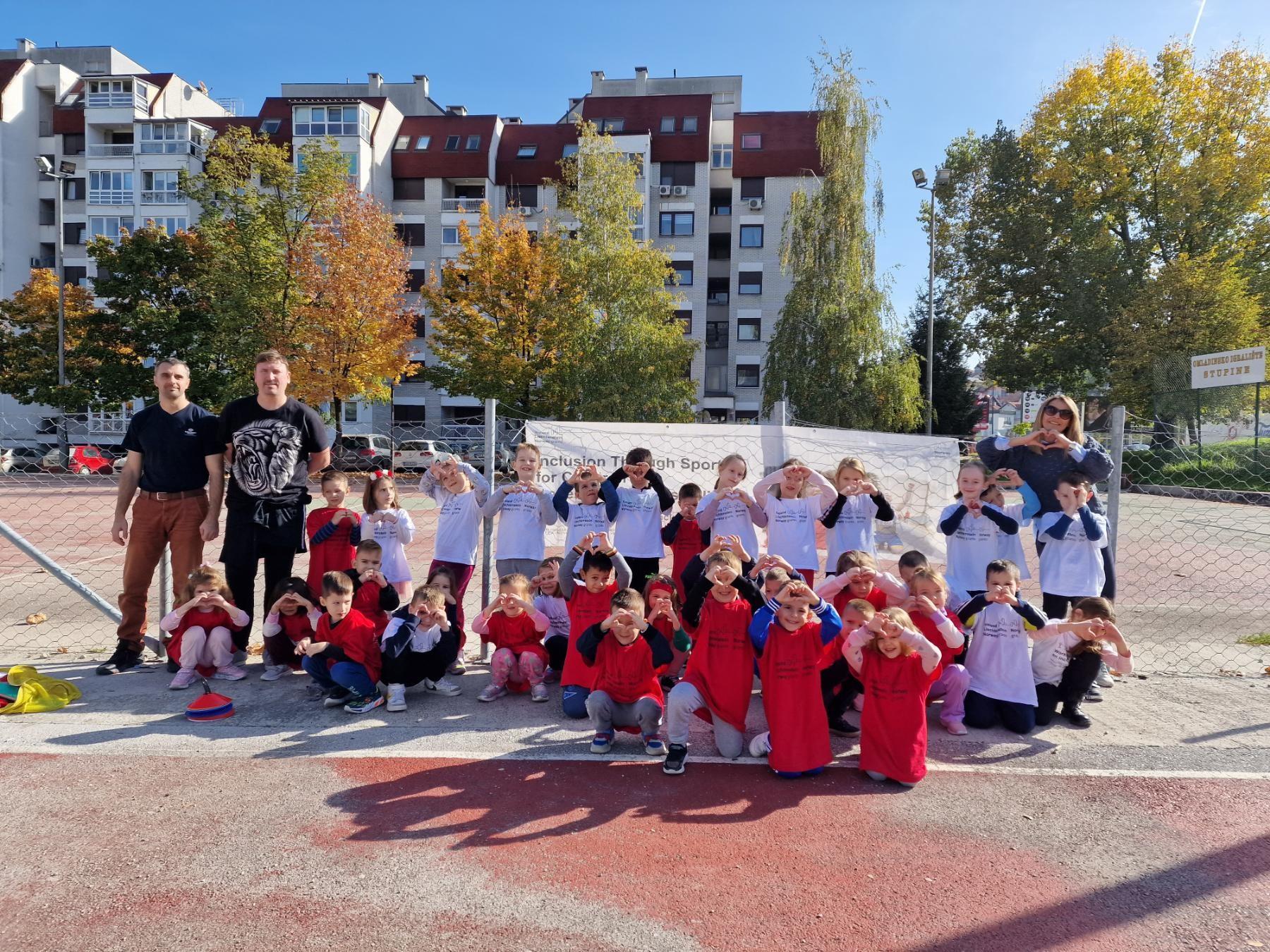
39
Regional Cooperation Magazine
Contributors & Credits
From the Fund Operators
Mateusz Wiśniewski
Francesca Bombarda
Sara Barbi External
Contributors
Thomas Mc Grath
From the Projects
Sreten Andonov Maritsa Kissamitaki Kada Delic Selimovic Marieta Ivanova Inga Retike
Ierotheos Zacharias Špela Kodre Diamanto Giannara Petko Georgiev Tanja Dimitrijević Kata Pátka-Szitter Silvia Bernardo Monica Tautul Director
Gian Luca Bombarda
The contents of the Magazine are the sole responsibility of the authors and can in no way be taken to reflect the views of the Donors.
40 Regional Cooperation Magazine
Cover image: Inclusion through sports for children with developmental disabilities
born with the intention of sharing the results and updates of the projects participating to the Fund to showcase the main achievements of implemented activities.
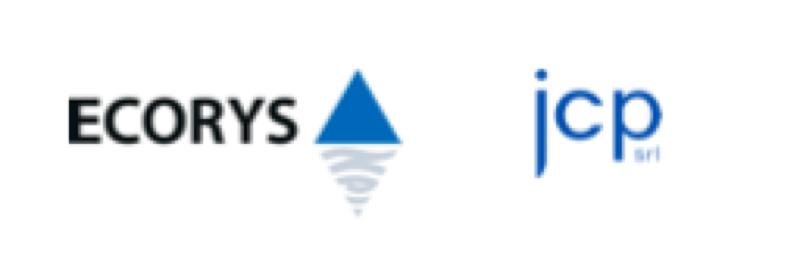
Follow us: regionalcoopmag.net

Contact us: themag@regionalcoopmag.net
FUND OPERATED BY:
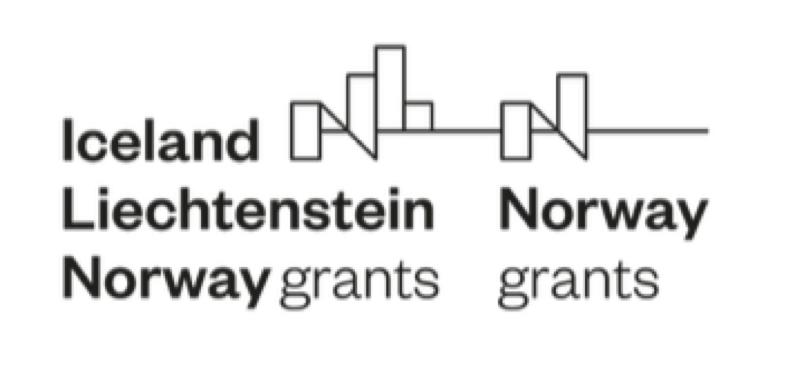
41 Regional Cooperation Magazine











 Gian Luca Bombarda The Fund Director
Gian Luca Bombarda The Fund Director






























